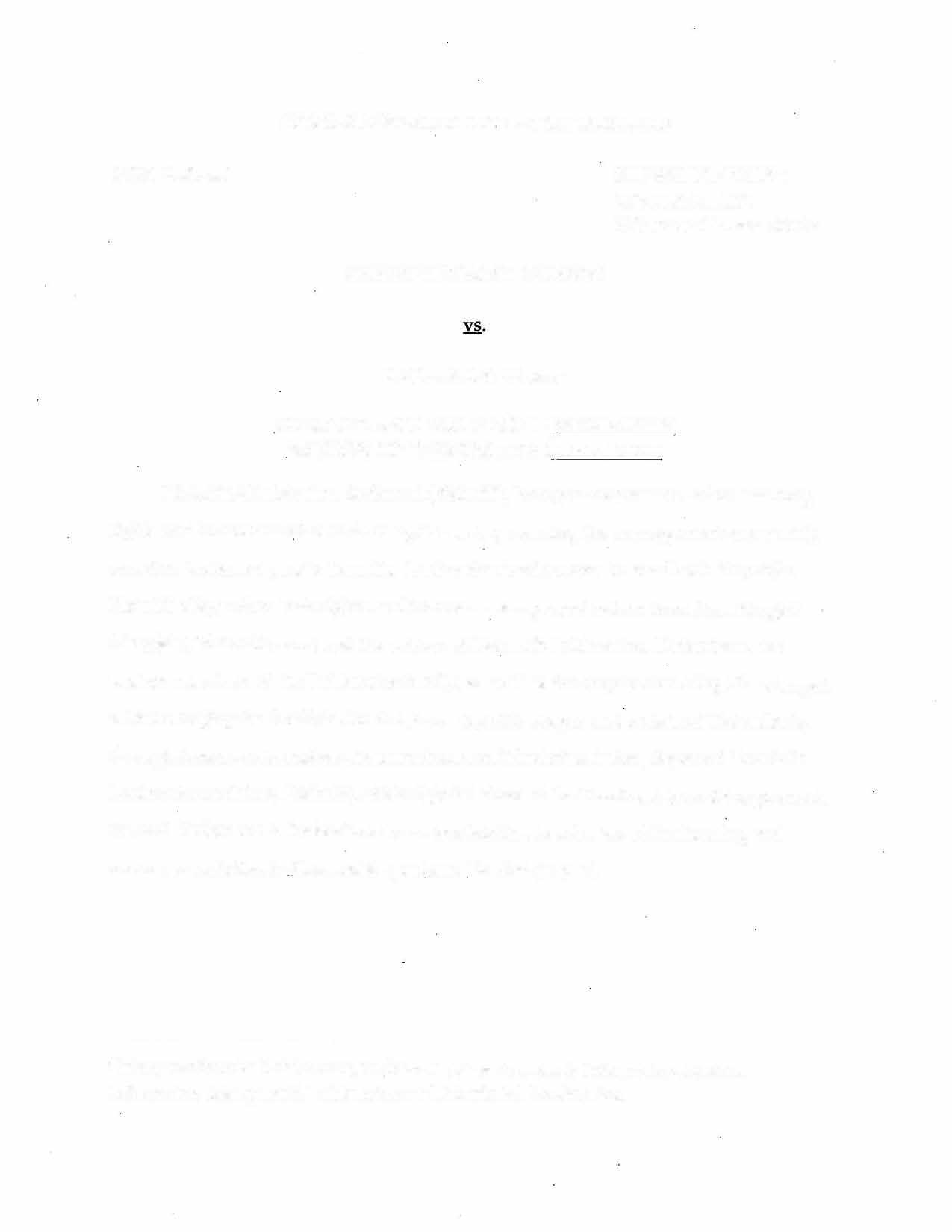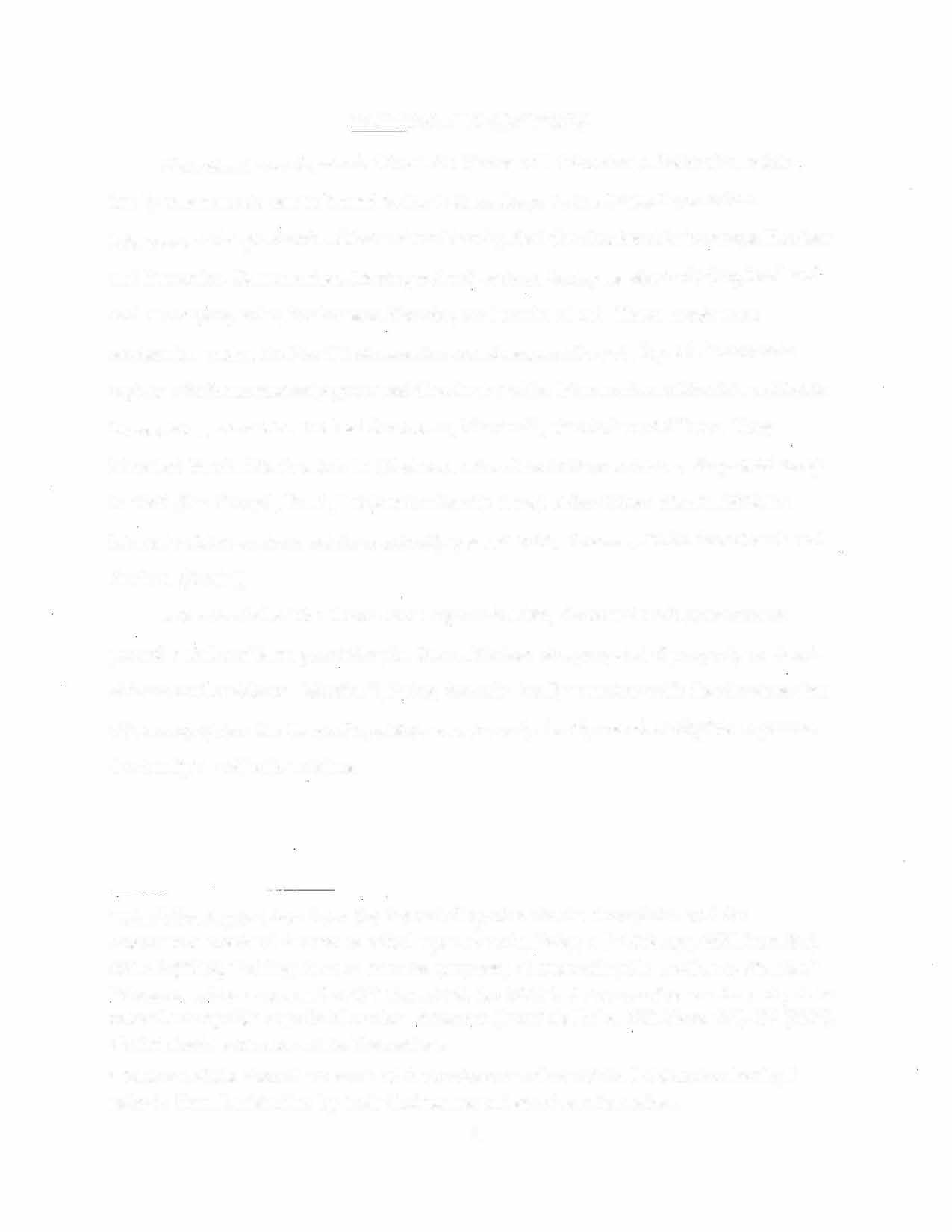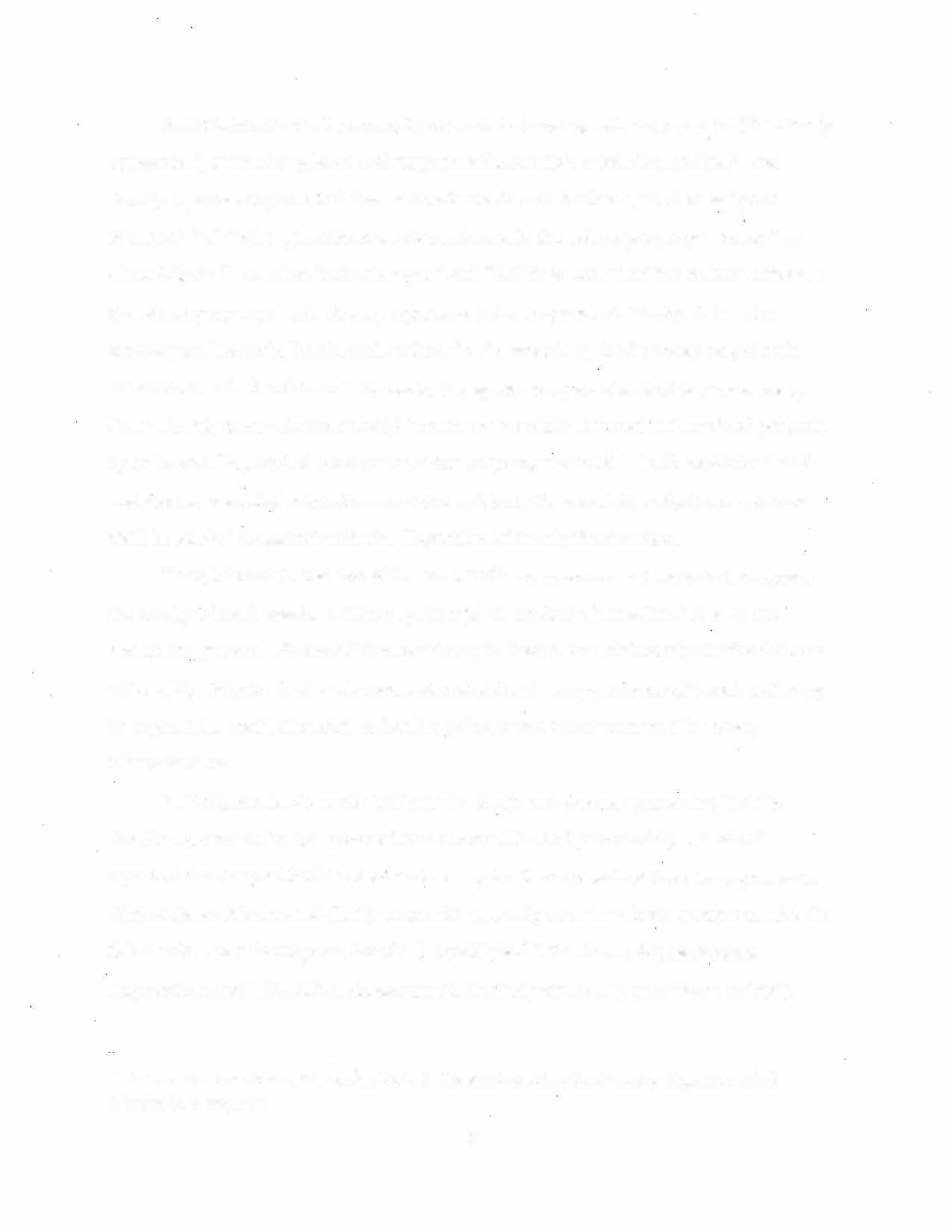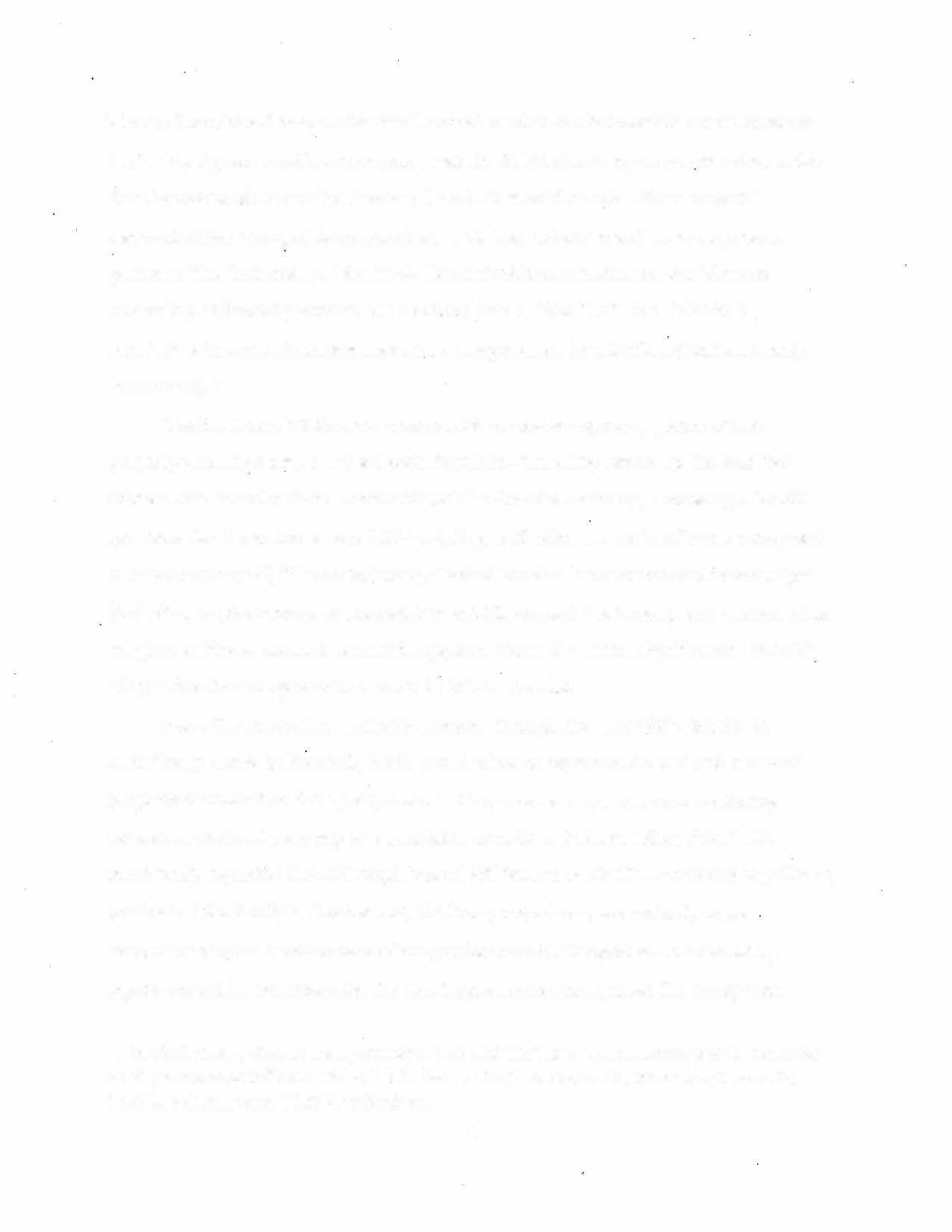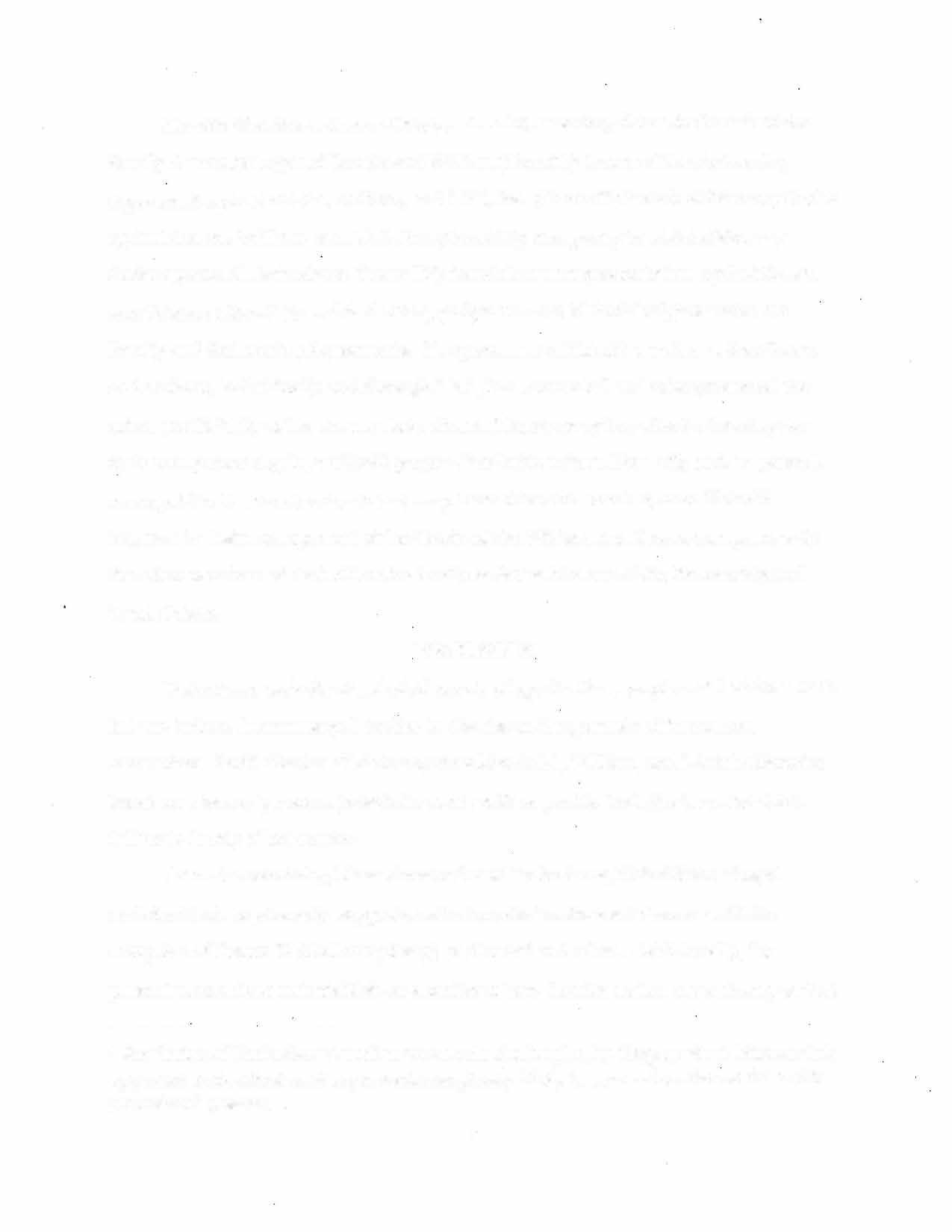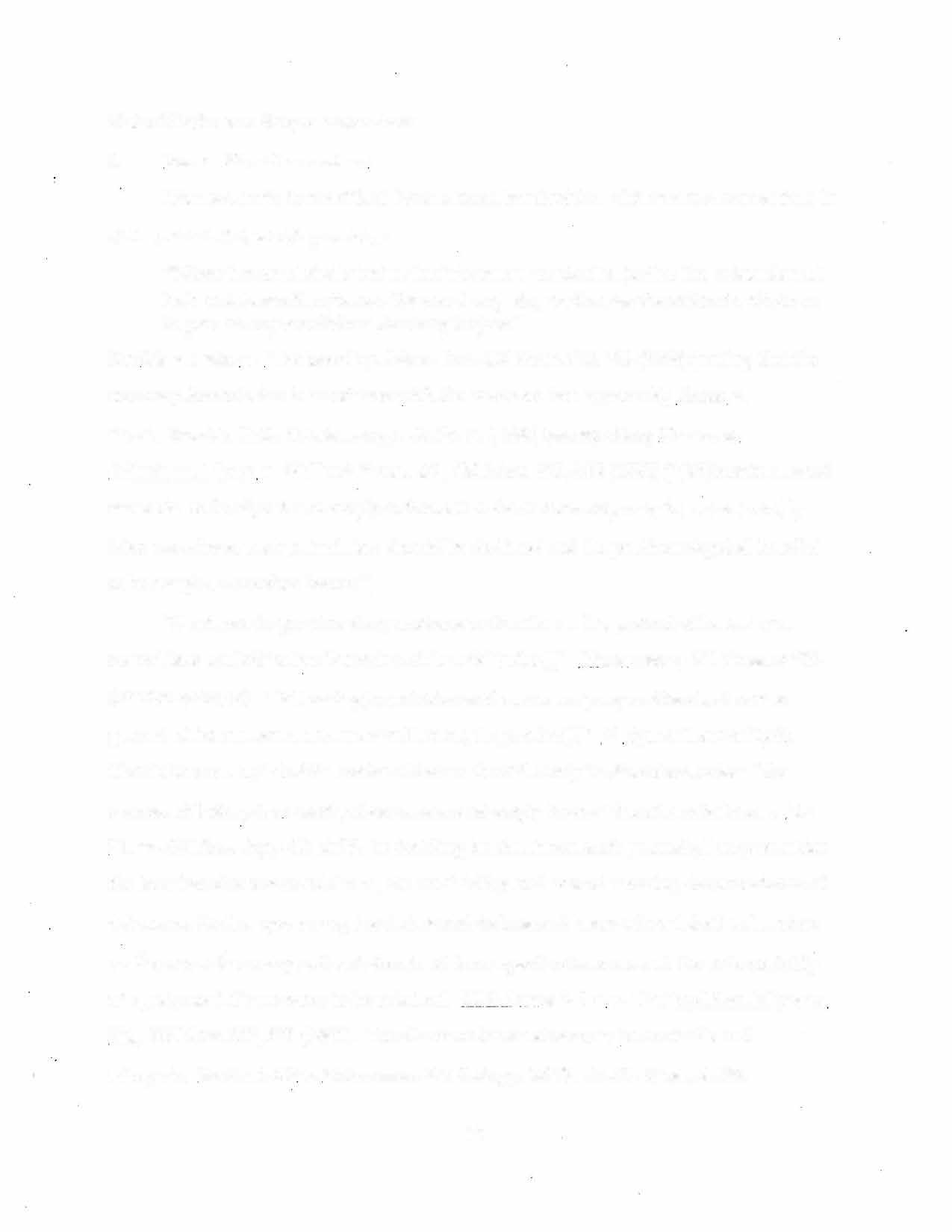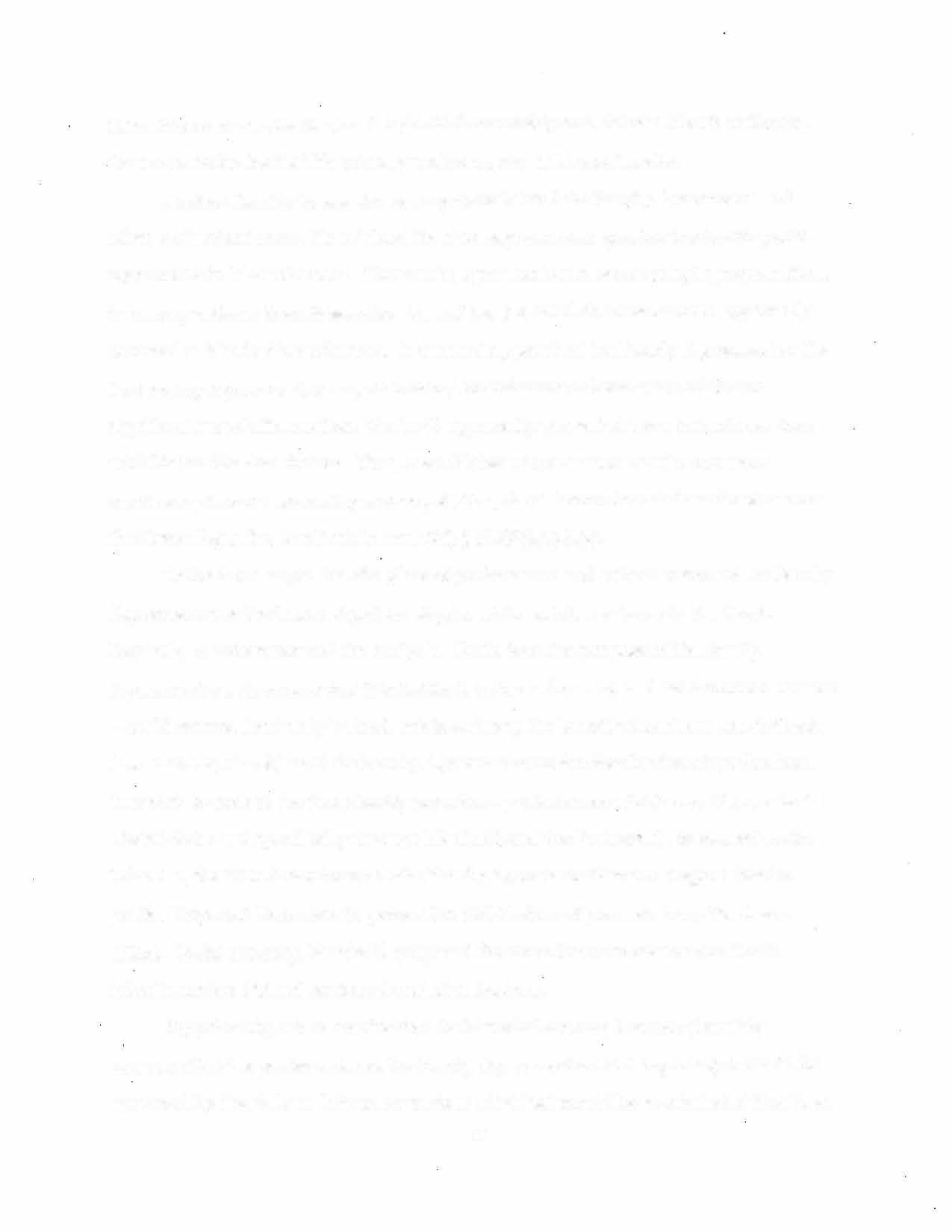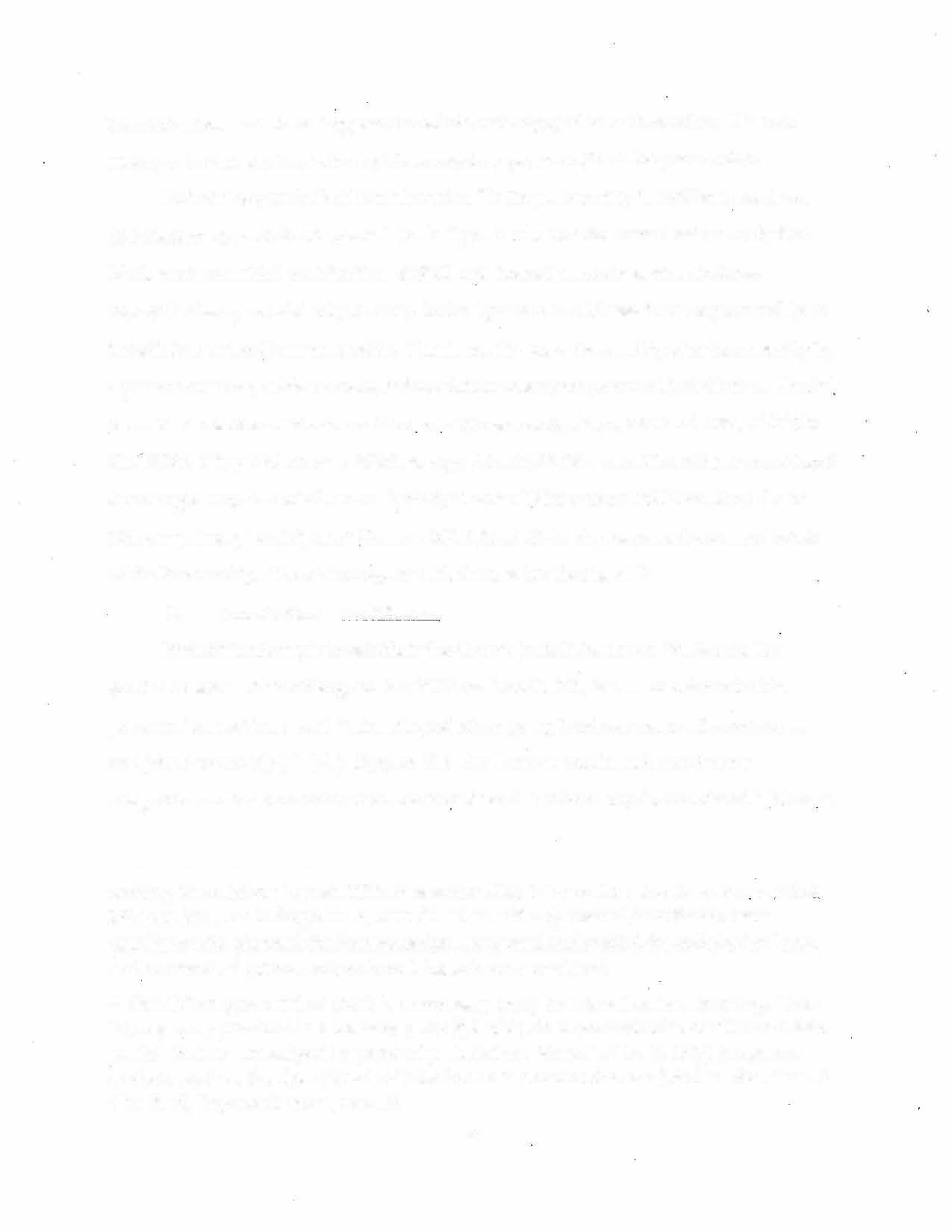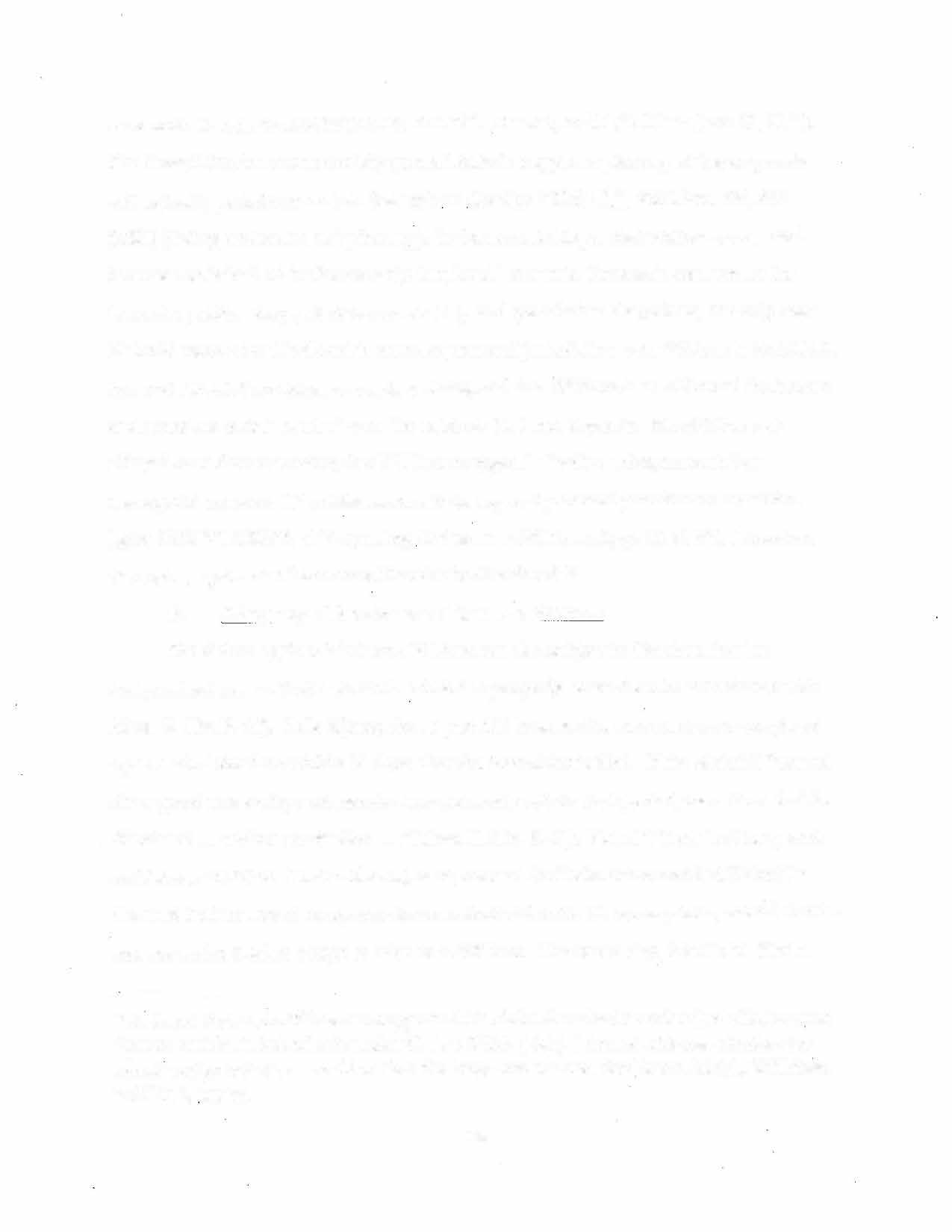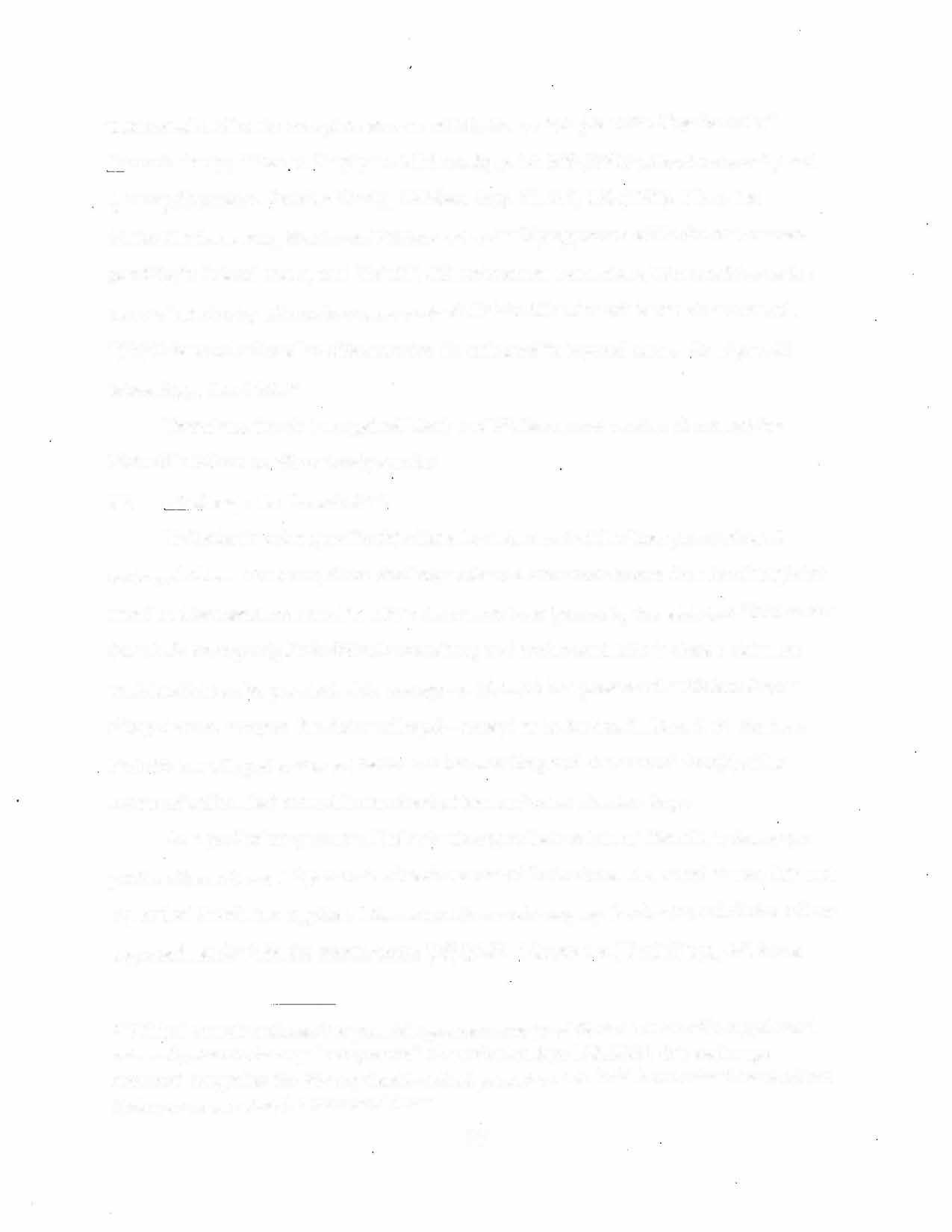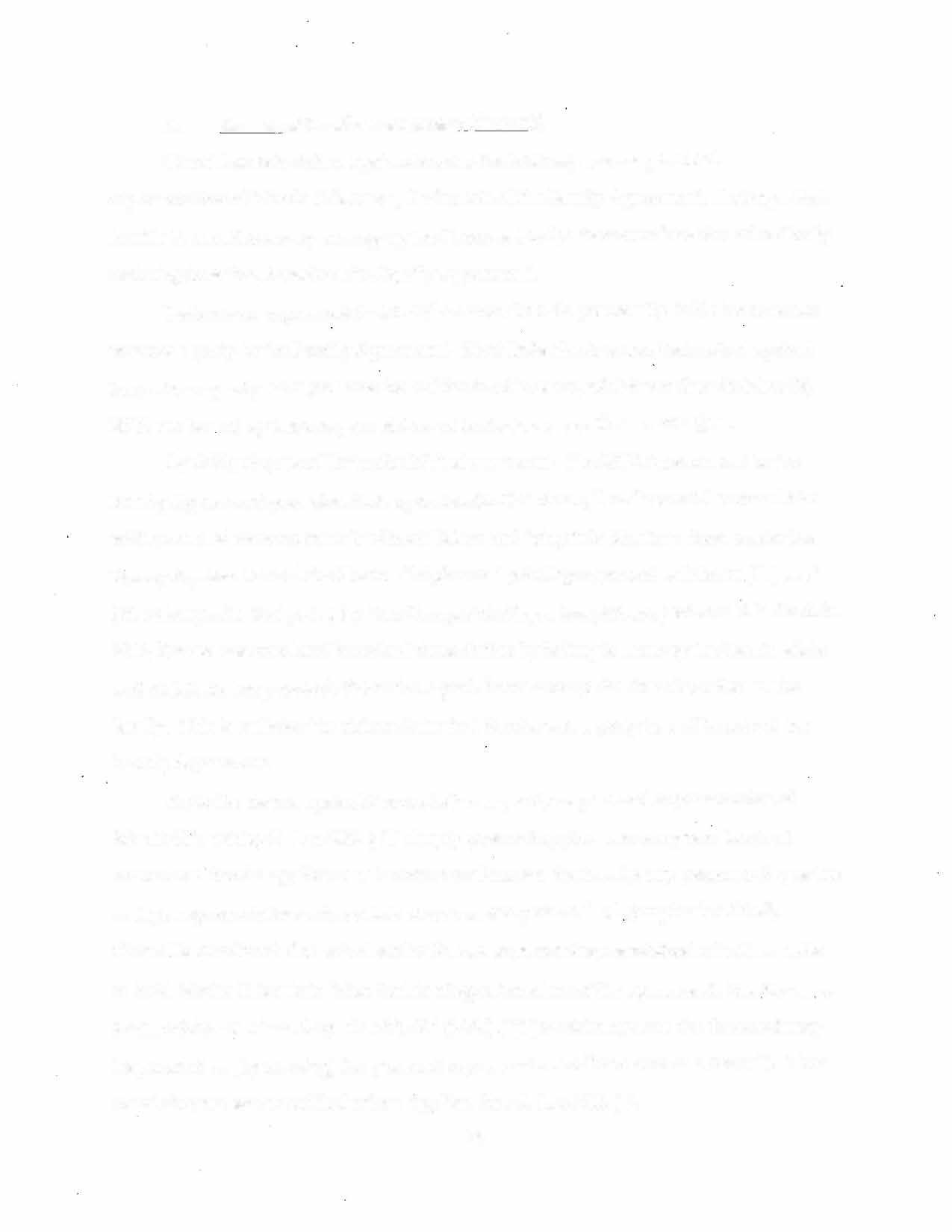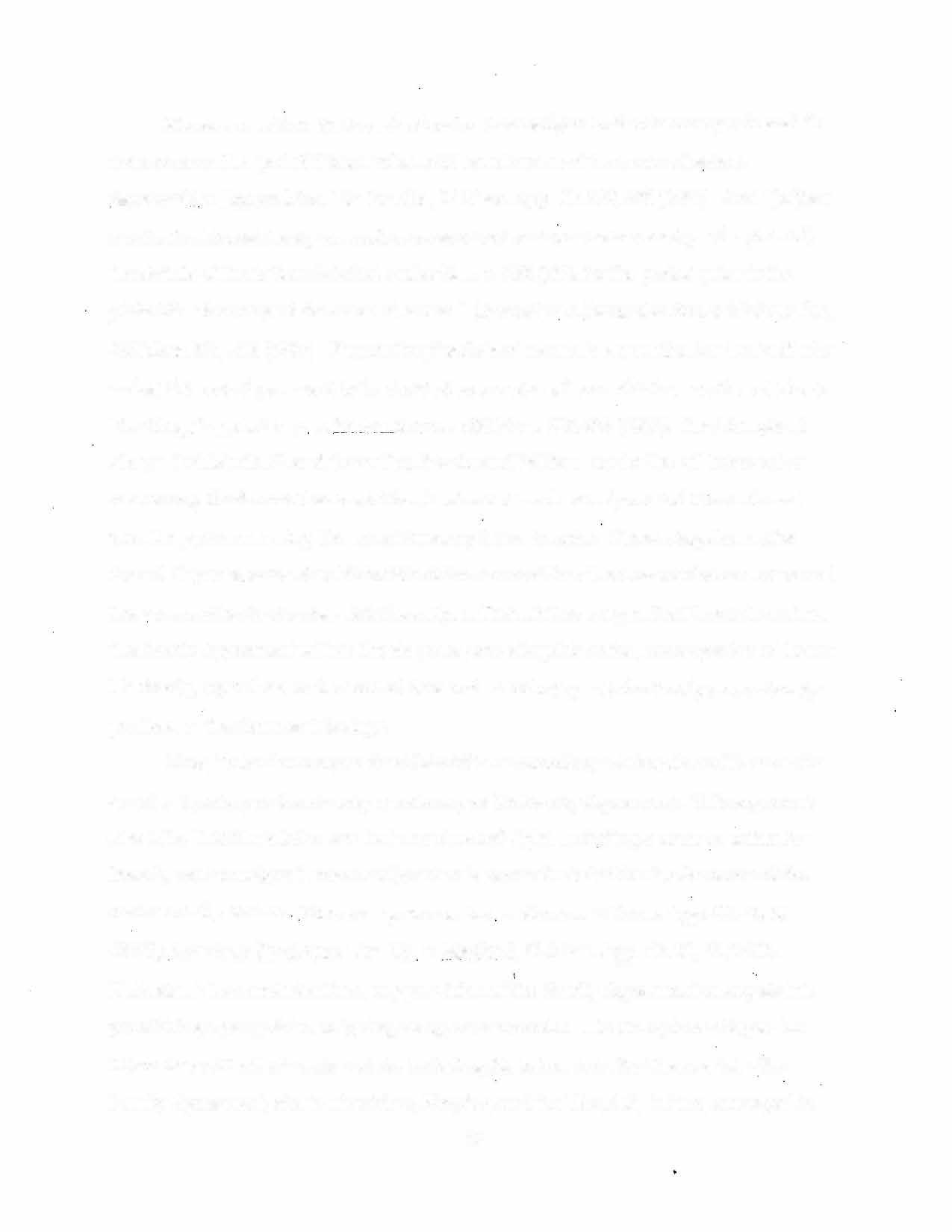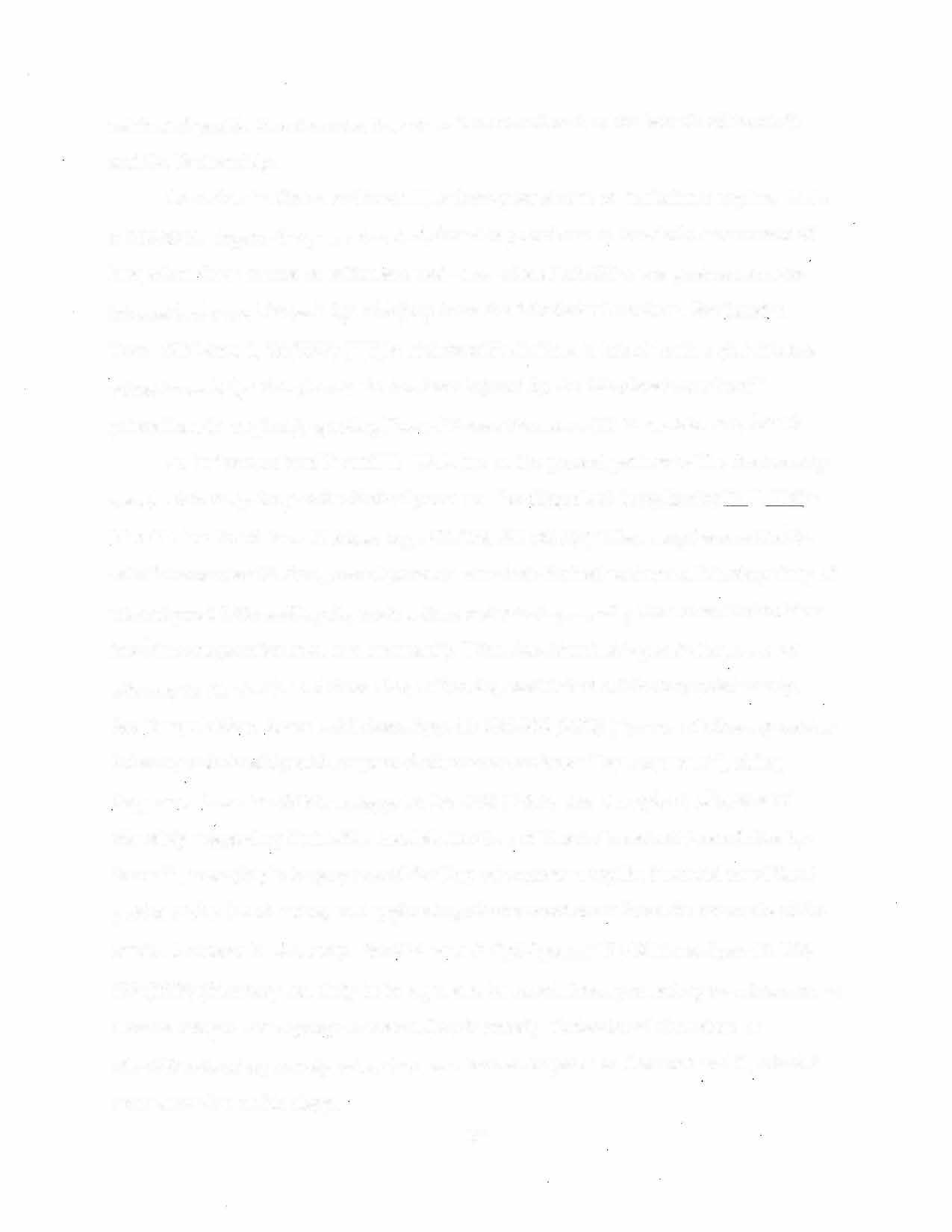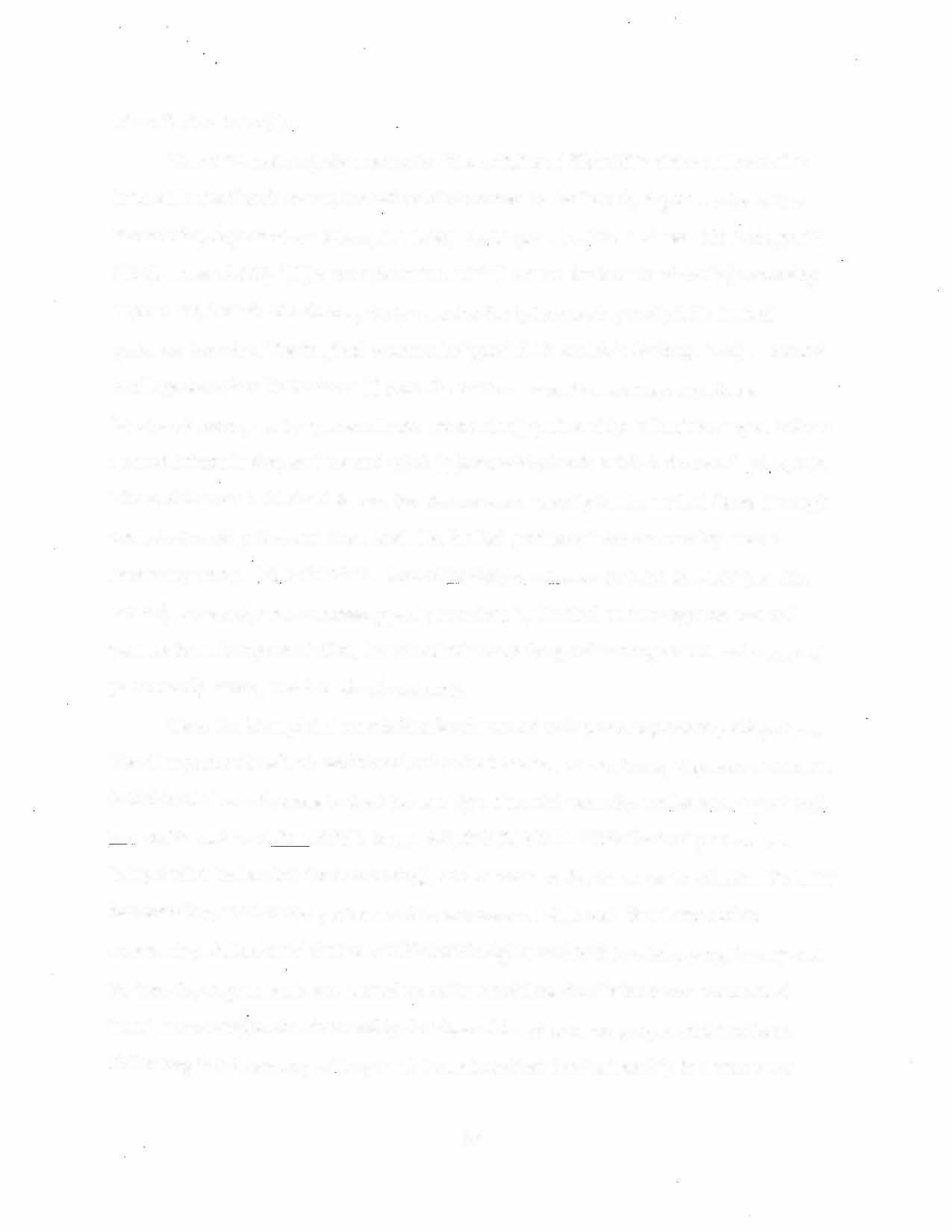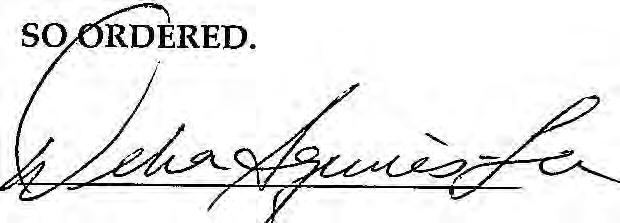FACTUALALLEGATIONS2
Defendants are descendedfromtheHouse ofLobkowicz,aBohemiannoble familywhoseroots can be tracedtothe14thcentury. Inthe1940s,Maximilian Lobkowicz,3 the patriarch ofDefendants' family,fled CzechoslovakiatoescapeNaziism andthereafter,Communism,leaving behindvariousfamilyassets,includinglandand realestateproperties,businesses,libraries,andworksofart. These assets were confiscated under the Nazi Protectorateand subsequent Soviet-alignedCommunist regime which successively governedCzechoslovakia. Maximiliamultimately settledin Dover,Massachusetts. He hadthreesons,Martin G.,DominikandOliver. They inheritedMaximilian's estate in 1/3shareswhenMaximilian andhiswifepassedaway in1967. (SeeCompl.,Ex.A,LobkowiczFamilyTree.) AfterOliverdiedin1972,his interestin Maximilian's estate eventually passedto hischildren,Defendants Mark and Andrea. (Seeid.)
Afterthefall of theCommunist regimein 1989,the newCzechgovernment passeda seriesof laws providingfortherestitutionofexpropriated property toCzech citizensandresidents. Martin G.,being the only family member withCzechoslovakian citizenship (later,theCzechRepublic),wasthe only family membereligible to pursue thefamily's restitution claims,
2 Thefollowingistakenfrom thefactual allegationsintheComplaintandthe documentsattachedtheretoorrelied upontherein,Polayv.McMahon,468Mass.379, 381n.3 (2014),"taking themas true forpurposesof evaluating the motionto dismiss." Edwardsv. Commonwealth. 477Mass.254,255 (2017). Ialso consider mattersofpublic recordsusceptible tojudicial notice. Schaerv.BrandeisUniv.. 432 Mass. 474,477 (2000). Certainfacts arereservedfor"discussion.
3 Becauseoftheshared surname ofthe variousmembersof theLobkowiczfamily,I refertothemhereinafter by theirfirstnamesunlessotherwise noted.
In1991,MartinG.,Dominik,Mark,andAndrea signed anagreement (theFamily Agreement)authorizingMartinG. topursuethefamily'srestitutionclaims.4 The FamilyAgreement provided thatDominik,Mark,andAndreaagreed toassignto MartinG. "alltheirright,titleand interest inand totheseizedproperty" "solely" to allowMartinG. toactas"soleclaimant" and "facilitatepursuitof theclaimsto recover theseized property." TheFamilyAgreementalso empowered Martin G. toactas attorneyforDominik,Mark,andAndrea "todoeverything he deems appropriatein connection with theclaims." However,the agreementprovided thatthe transfers by Dominik,Mark,andAndreawould "conferno beneficial interest in the seizedproperty uponMartin[G.],andall money andotherpropertyreceived[...] will bedividedand distributedone-third to Martin,one-thirdtoDominik,one-sixth toAndrea,andonesixthto Mark," consistent with thedisposition of Maximilian'sestate.
Thus,MartinG.and one of hissons,William,spearheaded the effort.to recover the family's Czech assets. William quithisjob to dedicate himself full time tothe restitutionprocess. HeestablishedresidencyinPragueandultimatelyobtainedCzech citizenship. Martin G. alsoclaimedand maintainedtheappearanceofCzechresidency tosupportthe restitution claims,but his primary residence remained inDover, Massachusetts.
In 1992,MartinG. wrote toDominik,Mark,andAndrea proposing thatthe FamilyAgreement be incorporatedintoaformallimited partnership. MartinG. reportedthatcounsel hadadvisedsucha steptoalleviate each of their taxexposureas UnitedStatescitizensandclarifywhoheldauthorityovertheCzechestateuponMartin G.'sdeath. Forthis purpose,Martin G. establishedL.F.I.,Inc.,aMassachusetts corporation,andL.F.I.LP,aMassachusetts limitedpartnership (the "Partnership").
4 TheBoston lawfirmofChoate,Hall &StewartdraftedtheFamilyAgreement at MartinG.'srequest.
MartinG. explainedtothe otherfamilymembersthatthePartnershipwouldpreserve theFamilyAgreement that recoveredassets bedistributed inequal shares betweenthe threebranchesof the family. Further,MartinG. would exercise his managerial responsibilitiesthroughhiscorporation,L.F.I.,Inc., whichwould serveasgeneral partnerof thePartnership. MartinG.,Dominik,Mark, andAndreawouldshare ownershipaslimited partners. OnoraboutJune 1, 1992, L.F.I., Inc.,Martin G., Dominik,Mark, andAndrea entered intoanagreement tothiseffect (thePartnership Agreement).5
MartinG. andWilliam weresuccessful inrecovering many piecesof real propertyandotherassets intheCzechRepublic-including several of thefamilies' thirteencastlesand palaces, certainhistoric landmarks, a winery, abrewery, ahealth spa,forestland and lakes, over1,500 paintings andotherartworks, alibrarycomposed ofapproximately 65,000 rarevolumes, classical musicalinstruments andmanuscripts (includingoriginalworks ofHandel, Mozart,HaydnandBeethoven), andvariousother religious artifacts, decorativefurnishings, and pieces of cultural significance. Plaintiff allegesthatthis vast portfolio exceeds $1 billionin value.
From the start ofthe restitution processthrough themid-1990s,MartinG. periodically wrote toDominik,Mark, andAndreatoreporton thereal and personal propertyrecovered and the prospects ofsellingrecoveredassets and/or restoring businessesandreal property to aprofitablecondition. In these letters, MartinG. consistentlyreportedthat, althoughhe an:dWilliamsucceeded'inrecovering significant. portionsof the family's Czechestate, the family memberswere unlikely tosee immediate returns because the real properties werein disrepair and burdened by significantdebts. Additionally,the Czechgovernment designated the family's art
5 ThePartnershipAgreement provided that distributions, when made, would be made toall partnersasfollows: 1% toL.F.I.,Inc.; 32.33% toMartin G.; 33.33% toDominik; 16.67% toMark; and 16.67% toAndrea.
collection andotherhistoric pieces (listed above) as worksofcultural.significance, whichrestrictedMartin G.'s abilitytosell them to buyersoutsidethe CzechRepublic. Despitethese reports,Plaintiffallegesthat,in 1993,thePartnership saw$200,000 in realizedgains fromthe sale of Czechassets.
OnSeptember 8,1993, at MartinG.'s behest,Dominikexecuted adurablepower of<ittorney grantingMartin G. "completepower to manage, control, careforand dispose ofanyinterest"Dominik heldinRoudnice,CzechRepublic. (Comp!.,Ex.H.) ThisincludedtheRoudnice Castlewhichserved asthe home ofMaximilian'sfamily priortoemigratingfromCzechoslovakia.
InFebruary 1994,Dominik,MarkandAndreaagreed toMartin G.'s request to amendtheFamilyAgreement(1994Amendment). The 1994Amendmentwasdrafted bytheBostonlaw firm ofHill &Barlow. Itnotedthatdue to "operatingcosts,repair and maintenance costs, and professional fees[] it[was] uncertain wither theRecovered Propertyhasany positive net value" andthat"thedistribution inkindofRecovered Property is impractical due tonumerousobstacles includingCzech laws relatingtothe transferofrealproperty to non-citizens,theexpatriationof currency, andthe exportof certainartworks." (Comp!.,Ex. Kat p. 4.) The 1994Amendmentthen(re)affirmedand expandedMartin G.'ssole authority toretain,manage,develop, andoperate the RecoveredProperty; purchase, lease,sell,orconveytheproperty; executecontracts, notes, securities,loans,mortgages andotherinstrumentsrelatedthereto; engage employees,agents or partners in connectionwiththeRecovered Property; and, in general,manage thefinancesoftheRecoveredProperty.
InMarch1994,Martin G. notifiedDominik,Mark, andAndreathat the Partnershipwould payWilliamandhiswife,Sandra,$600,000 asretroactive compensationfortheirwork-to-dateinrecoveringandrestoringthefamily'sCzech estateandwouldpaythemannual salaries-$150,000toWilliamand $100,000 toSandra goingforward. William would also receivea10% commissiononany cashdistribution.
5
MartinG. requested that the otherlimited partnersapprovetheproposal butnotedthat he hadtheauthorityto institute the compensation planwith or without theirconsent. Thereafter,betweenOctober1994andOctober 1995,MartinG. wroteseveralletters stating thatWilliam and Sandracontinued workwithoutcompensation from the
Partnership, thatthe estate'sexpensescontinued toexceed income, and thatCzech
political pressureprevented thesale of thefamily's artcollectionandotherpiecesof historicalofcultural value. Nonetheless,MartinG. expressed optimismthat the estate wouldsoon turnaprofitand allowadistribution, perhaps before thecloseof 1996. In June1997,MartinG.authorized adistributionof$25,000 toDominikand$12,500 each
toMarkandAndreabutcautionedthat theyshould notexpect furtherpayments anytimesoon.
OnJuly17,1998,MartinG. notified the otherlimited partnersthat,duetothe saleofcertain forest lands, the expectedyear-endrevenue wouldtotal approximately $10 million. Of this,approximately$6 millionwould pay operating expenses, back salariesandotherdebts. MartinG.determinedthat$300,000would be distributedin cashthroughthePartnership,with anadvancepaymentof$10,000 toeachof the three branchesofthe family. However,MartinG.conditioned thedistributionoffundson an agreementfrom the otherlimited partnersto releasehim;hiswife,MargaretBrooks
Lobkowicz ("Brooks");William; and Sandra; ofanypotentialliability to date. MartinG. furtherstatedthat thePartnershipwould grant himselfandBrooks, paymentsof $100,000 per yearfortheir workon behalf of the estate,retroactiveto 1995, andhire
William's company,L.E.Holdings,to man?ge theCzechestate for$650,000 annually. MartinG.didnotcorrespond concerningtheCzech estate forthe nexttwoyears.
Then, in2000,he notifiedthe other limited partnersthey would needtoamendthe FamilyAgreement because Czech testamentarylaw requiredthat he bequeath 10%of hisestate toeach ofhis fourchildren. MartinG. notedthathe had designatedspecific bequeststohischildren tosatisfythe10% requirement, including threepaintings, but

that the amendment would ensure that Dominik, Mark, and Andrea retained their interests (2/3 in total) in these and all assets ofthe Czech estate left to Brooks orMartin G.'s children. Martin G. further noted that it remained their "ultimate goal" to obtain an export license from the Czech government and auction pieces for profit, but that prospect remained unlikely. On or about August 24, 2000, Martin G., his wife, his children, and Dominik, Mark, and Andrea executed an amendment to the Family Agreement acknowledging that, "to avoid confiscatory estate and death taxes" and comply with the requirement under Czech law that 10% of Martin G.'s estate pass to each of his four children, Martin G. had designated "specific items of Recovered Property [to] be given to each of his wife [Brooks] and children as opposed to bequests of a percentage of the total value" of his estate. (Compl., Ex. S, at p. 2.) However, it provided that Martin G's will "ha[d] been executed solely to conform to various provisions of the laws of the Czech Republic, and that the Family Agreement ... shall control the ownership, management and disposition of the Recovered Property" and that Brooks and Martin G.'s children would own any Recovered Property bestowed to them in equal shares as tenants-in-common. (Id. at pp. 3-4, §§ 2-3.) The amendment • provided further that, upon Martin G.'s death, Brooks would assume Martin G.'s power of attorney under the Family Agreement, and if Brooks failed to do so then William. Id. at p. 3, § 4.
Martin G. died on January 4, 2014. On September 25, 2014, a Czech court ruled that his holographic will, naming Brooks as his sole heir, controlledMartin G.'s estate under Czech law.· Brooks also succeeded Martin G. as (1) a limited member of the Partnership; (2) as owner of L.F.I., Inc., the general partner of the Partnership; and (3) as attorney-in-fad for the management and control of the Czech estate. On June 3, 2015, an action was filed in Norfolk County Probate Court as to Martin G.'s estate, naming William as Foreign Personal Representative and including the decision of the Czech court's probate decision. No further action was taken thereafter and the Probate Court
automatically disposed oftheactionin2019, pursuant toitsproceduralrules.
Brooksproposedthat thelimited partners meetinOctober 2015 to discussthe long-termmanagement of theCzech estatebut,afteraconversationwithWilliam, postponedthemeeting claiming that MartinG.'sCzechandUS. estates hadnot been settled. InNovember 2016,Brooks again wrote tothelimitedpartners claiming that the Czechprobateprocess was still notcompleteand thatshe had not been approvedas heir;thatit was,therefore,impossible for herto raise money,sell assets,orotherwise service the Czech estate. Thereafter,Brookscontinued Martin G.'s practice ofsending periodicupdatestothe other limited partners detailing the poor condition of theCzech estatewhileproviding "meager" annualdistributionsin2016 through2019.
From1998 to2019,thePartnershiptypicallyissuedannual distributionsof $10,000toDominik,althoughhe received$32,500 in2005 and,in certainyears,no distributionatall. Intotal,Dominikreceived$397,500 indistributionsfromthe Partnership. DominikdiedonFebruary24,2020,andpurportedly lefthisestate, including hisinterests intheCzechestate tohiswife,Karpjak. Atthe time,Karpjak, wasexperiencing significantfinancial and medicalhardshipsof her own,and she asked Brooks andWilliam repeatedly forfinancial assistance basedonDominik's interestsin theCzech estate. Williameventuallyresponded thatit was "very difficult,if not impossible" to provide herany help,andassertedthat "we have lost 100% of our business [and] there is no incomeanywhere." Brooksultimately sentKarpjaka check for$5,000,butwithout explanation orfurthercorrespondence.
OnNovember6,2020,Karpjakconveyedallherinterestsin "the assets ... associatedwiththeCzechRepublic" thatshe hadinherited fromDominik toPlaintiff, hernephew. Ex. X-1. Karpjakdied inAugust2022. Thereafter,Plaintiffwrote to BrooksandWilliamasserting his rights todistributions from thePartnership anda 1/3 interestintheCzechestate. Hedid not receive any substantiveresponse.
P
laintifffiled this action onOctober 28,2024,asserting claims forbreachof the
FamilyAgreement againstBrooksandWilliam (CountI); breachofthePartnership
AgreementagainstBrooks,William, andL.F.I., Inc. (CountII); breach offiduciaryduties
againstBrooks,William, andL.F.I.,Inc. (CountIII);conspiracy to violatefiduciary
dutiesagainstallDefendants (CountIV); fraudulentmisrepresentationagainstBrooks
andWilliam(CountV); and declaratoryjudgmentastoPlaintiff'srightsunder the
FamilyandPartnershipAgreements. ThegravamenofPlaintiff's claimsisthatBrooks
andWilliam, individually and throughL.F.I.,Inc.,concealed and misrepresentedthe
actual profitability of theCzech estate, diverted fundsaway fromthePartnership for
theirownpersonalgain, withheldproperdistributionsfromDominik, and, ingeneral,
managedtheCzech estatefor theirownpersonalbenefit. Further, oncePlaintiff
inquiredtotheirmanagement of theCzechestate,WilliamandBrooksconspiredwith
theothermembers of theLobkowicz family tofreezehim out of thePartnershipand
CzechEstate.
DISCUSSION
Defendantsseekdismissalofallcounts allegedintheComplaint.6 I addresseach
intum, below. Insummary,Idecline to dismiss on the groundsof forum non
conveniens. Iwill dismiss all claims againstMartin M.,William, andMarkLobkowicz
basedonalackofpersonaljurisdiction and, withrespect tothe lattertwo,Plaintiff's failuretotimely effectservice.
AstotheremainingMassachusetts-basedDefendants,Plaintiffhasalleged sufficientfactsto plausibly suggesta claimforreliefundereachCount-withthe
exception ofCountIV (civilconspiracy)as directed atAndrea. Additionally, the
presentrecorddoes not establish, as a matterof law, that the claims areuntimely orthat
6 ResolutionofDefendants'.motionwas madechallenging by itsgrapeshot, kitchensink
approachandinclusionof arguments marginally likely tosucceedonthemeritsat this procedural posture.
Plaintifflacksstanding to assert them.
I. ForumNonConveniens
Massachusettshas codifiedthecommon lawdoctrine of forumnonconveniensin G.L. c.223A,§5,whichprovides:
"Whenthe court finds thatin the interest ofsubstantialjusticetheactionshould be heard in another forum,thecourtmaystayordismissthe actionin wholeor inpart onany conditionsthatmay bejust."
SeeGianocostasv. InterfaceGrp.-Mass..Inc., 450Mass. 715,723 (2008) (notingthatthe statutoryformulation isconsistent withthecommon lawapproach); Green v. Manhattanville Coll., 40 Mass.App.Ct. 76,78 (1996) (same),citingUniversal AdjustmentCorp. v. MidlandBank,Ltd., 281 Mass.303,313 (1933) ("[W]here inabroad sense the endsofjustice strongly indicate thatthe controversy may bemoresuitably triedelsewhere,thenjurisdictiqn should be declined andtheparties relegated to relief tobesoughtin anotherforum").
"Decisionstogrant ordeny motionsto dismissonthegroundofforum non conveniensareleft to the discretion ofthe trialjudge[.]" Gianocostas, 450 Mass.at723 (citation omitted). "Assumingjurisdictionand venueare proper,dismissal onthe groundofforumnon conveniens willrarely begranted[.]" Id. (quotationomitted). Thatisbecausea plaintiff's choiceof forumshouldrarely be disturbed unless "the balance ofboth privateand publicconcerns strongly favors" thealternateforum. Id.; Green,40 Mass.App. Ct.at79. In deciding to dismiss on such grounds,I may consider thelocation of relevant evidence,the availability and cost of securing the attendance of witnesses,the lawgoverning theclaimsanddefensesatissue,administrativeburdens onthecourt,the comparativeinterestsof the respective forums,and the enforceability ofajudgment,if one were to beobtained. W.R. Grace&Co. v.HartfordAcc. &Indem. Co.,407Mass. 572,578(1990). Thealternateforumalsomust beavailableand adequate. SnofrostABv. Hakansson,353F. Supp. 3d99,104(D. Mass.2018).

Here,the locationof likely witnesses favorstheCommonwealth. Fourofthe sevenDefendantsresidein Massachusetts.7 Ofthenon-forumDefendants,Mark residesinNewHampshire and Martin M.residesinFlorida. Plaintiff residesin Connecticut. All theindividual partiesareUnited Statescitizens. OnlyWilliamresides intheCzechRepublic and hemaintainsdual citizenship intheUnitedStatesandCzech Republic. While the Complaint paintsWilliamasa centralfigure tothe eventsatissue, the parties concede that Plaintiffcanpursuediscovery and testimony fromWilliam via lettersofrequestpursuant totheHagueConventionand candosoeconomically, whetherlive or remotely viaZoom,etc. Plaintiffmayalso beable toobtain discovery concerningWilliam's actions viarecordsrequestsand/oraRule 30(b)(6) deposition subpoenadirected toL.F.I.,Inc.,of whichWilliam is a corporate officer. Further,it appearsthatallthe individual partiesand central witnesseswereborn,raised,and/or educatedin theUnited States (mostly in Massachusetts),and speakEnglishastheir primary language.
Astothelocationof relevant evidence,theestateassetsare,ofcourse,locatedin theCzechRepublic. Butseveral otherreasonstipthisfactorinfavorof Massachusetts. First,theFamily andPartnershipAgreements,amendments thereto,andthe powerof attorneyweredraftedintheCommonwealthbyBoston-based lawyers. Despite his dual citizenship and claimstoCzechresidency,MartinG.'spermanent residence wasin Dover,Massachusetts: All theagreements and correspondence between membersof theLobkowiczfamily concerningtheCzechestate wereconducted inEnglishand all,or nearlyall,appeartohave emanated fromMartinG.inMassachusetts. ThePartnership andL.F.I.,Inc.,whose operationsand records are afocalpoint oftheComplaint,are Massachusetts business entities thatlist MartinG.'sDoverhomeas their principal
7 Indeed,as theCourtlackspersonaljurisdictionoverthe non-forumDefendants,the MassachusettsDefendantsare the onlyoneswhoshallremainpartiestothisaction. See infra.
p
lacesof business. Thus,while thereisassuredly relevant evidencein both
Massachusettsandthe CzechRepublic,the majorityoftherecordsarepresumablyin thisforum.
Asto the administrative burdens,whilesomerecords will needtobe translated
fromCzechtoEnglish,thesame would be trueisthis matterproceeded intheCzech Republic. Additionally,the entireproceedinginthe CzechRepublic wouldrequire
translationto accommodatePlaintiffandpotentially the majorityof theother witnesses.
I also creditPlaintiff's assertion that requiring himtopursuethis matterin aforeign
country,inan unfamiliarlegal system,where hedoesnot speak the language would
imposesignificantfinancial and logistical burdens. 8
Accordingly,Defendantshave notestablished dismissal isappropriate basedon the logistical factors underpinning thedoctrine offorumnon conveniens.
II. ChoiceofLawAnalysis
Defendants argue that,because Czech lawgovernsthe claims in this case, dismissalonthe basis offorumnon conveniensandunderMass.R.Civ.P.12(b)(6) in
connection withPlaintiff's specific claimsiscompelled. Therefore,Iconsidernext
whetherMassachusetts or Czechlaw governsPlaintiff's claims.
"Thefirststepin a choice oflawanalysisistodetermine whether an actual
conflict exists betweenthesubstantivelawsof the interestedjurisdictions." Reicherv. BerkshireLifeIns.Co.ofAm.. 360F.3d1,4 (1stCir. 2004) (emphasis added). Accord
8 Plaintiff has not demonstrated, however,that the legal systemofCzechRepublic wouldnotaffordhimafairandunbiasedtrial,and nothinginthisdecision should be readto suggest orimply the like. Further,whilePlaintiff's abilityto enforcea Massachusettsjudgmentin the CzechRepublicremainsunclear,itisnot evident that Plaintiff's requested relief-moneydamagesandadeclarationof his interests inthe . Partnership andtheproceedsof the estate-willnecessarily requiresame. Put elsewise, Plaintiff has notrequested anorderfromthisCourt totransferor dispose of theestate's assetsinconflict with Czech law.

Kaufmanv. Richmond, 442Mass. 1010, 1011 (2004). AlthoughDefendants contendthat Czechlawgenerally governsPlaintiff'sclaims, the only material distinctionthey identify isthatCzechlawpurportedlyrequiresaplaintiffasserting claimsofbreachof contract, breachoffiduciary duty,orfraudtopleaddamagesandcausation with specificity. Suchheightenedorparticularizedpleadingstandards are generally considered procedural andnot substantive requirements. SeeJohnston v.Box,453 Mass.569,578 (2009) (rule requiring particularized pleadingofshareholderderivative actionswas procedural);Ausikaitison behalf ofMasimoCorp.v. Kiani, 962F.Supp. 2d 661,672 (D.Del. 2013) (same). SeealsoRoyaltyNetwork,Inc. v.Harris,756F.3d 1351, 1360_(11thCir. 2014) (state lawrequirementthat plaintiff verify complaint was procedural and thus, did not applyin federal forum).
Itiswell-established thatMassachusettscourtsapply their ownproceduralrules, evenif the partieshavedesignated anotherforum's lawas governing theirrelationship.
SeeDrakePartners,LLCv.Wilson,Sonsini,Goodrich&Rosati,LLP,No. 2184CV2131, 2021WL 8565959, at*7 (Mass. Super. Nov. 7, 2021) (Ricciuti, J.) ("A court usually applies itsown local lawrulesprescribing howlitigaticinshall be conductedevenwhen itappliesthe locallaw rulesofanotherstatetoresolveotherissues inthecase."), quotingRestatement(Second)ofConflict ofLaws§ 122(1971). See alsoCosmev. WhitinMach.Works,Inc., 417Mass. 643, 645(1994)("Generally ... Massachusetts courtswill applytheirownrulesofprocedure" evenwhentort occurredelsewhere);
DMISales,Inc. v. VentaAirwasher,Inc., 94Mass.App. Ct.1120, 2019WL406118, at*2 (Feb. 1,2019) (Rule1:28) ("Massachusetts is the Stateinwhich the.actionwasfiled, and in the ordinarycoursetheproceduralrulesoftheforumwouldcontrol."); Ethicon
Endo-Surgery,Inc. v.Pemberton,No. 10-3973-B,2010WL5071848, at*7(Mass.Super. Oct. 27,2010) (Lauriat,J.) (applyingMassachusetts preliminaryinjunctionstandard despiteNewJersey choice oflawprovision). AsDefendantshave notidentifiedany substantive difference between Czech and Massachusetts lawrelevant tothe
Complaint,I donotconclude thatgoverninglawfavors dismissal under thedoctrine of forumnonconveniens.
Furthermore,evenifI were to·assumearguendo thatsubstantivedistinctionexist relevanttoPlaintiff's claims,the choice oflawanalysis dictates thatMassachusetts law governseach ofPlaintiff's claims.
1. PartnershipAgreement
I beginwithPlaintiff'sdairns forbreachofcontractand fiduciaries dutiesarising fromthe Partnership Agreement. Ingeneral,Massachusetts has adopted a functional choice-of-law approach guided bytheRestatement (2d)ofConflict ofLaws. Clarendon Nat. Ins. Co.v.Arbella Mut. Ins. Co., 60Mass.App.Ct. 492,495-496 (2004),citing BushkinAssocs.,Inc.v. RaytheonCo., 393Mass. 622,631-632 (1985).9 Thisgeneralrule "may besupplanted,however,bythe 'internal affairs doctrine."' Natale v.EspyCorp., 2F. Supp. 3d93,102 (D.Mass. 2014),quoting Harrisonv. NetCentricCorp., 433 Mass. 465,471-472(2001). SeeAstraUSA,Inc.v.Bildman,455Mass. 116,119 n.4(2009) (Massachusettshas long-standing policyofapplyinglawofStateofincorporationto internalcorporateaffairs). Underthis doctrine,the lawof thestate of incorporation shallapply "in matters relating totheinternal affairsofa corporation ... suchasthe fiduciary duty owedtoshareholders." Natale,2F. Supp. 3dat 102,quotingHarrison, _433Mass.at470. SeeDerivativeLitig., 531F. Supp. 2d 1173,1215 (N.D. Cal.2007) (internalaffairsdoctrineappliedtoclaims forbreachoffiduciaryduty; accounting; unjustenrichment; recession; constructive fraud;waste; breachofcontract; gross management;andrestitution). Thepurpose ofthedoctrineistoavoid conflicting demandsonanentity whichmayoperateinmore thanonejurisdiction by permittingit to conformits internalaffairstothelawsofonestate,ratherthanmultiple,potentially
9 TheforumState's choice of law approachdetermines whichjurisdiction's lawgoverns the substantive claims. ClarendonNat. Ins.Co.v.Arbella Mut. Ins. Co., 60Mass.App. Ct.492,495 (2004).
conflicting,setsof laws. Harrison,433Mass. at470;Natale,2 F. Supp. 3dat102.
Here,L.F.I.LP isaMassachusetts limitedpartnershipwithaMassachusetts entity,L.F.I.,Inc.,servingasgeneralpartner. CountIIoftheComplaintalleges that L.F.I.,Inc. breachedthePartnershipAgreement-by and through its officers,Martin G., Brooks,andWilliam-by managingtheCzechestateforthebenefit of thoseindividuals ratherthanworkingingood faithforthebenefit ofthePartnership and itslimited partners. CountIIIsimilarly allegesbreachesof fiduciaries duties arisingfromthe PartnershipAgreement. CountVIseeksadeclaratoryjudgmentastoPlaintiff'srights inthePartnership. Astheseclaims concerntheinternal affairsof aMassachusetts limitedpartnership,Massachusetts lawgoverns.
11. FamilyAgreementandPowerofAttorney
The provisionsofFamilyAgreementand 1993Power ofAttorney,andPlaintiff's claimsrelatedthereto-largely echo those concerning thePartnershipAgreement. Indeed,itisnotclear from therecordwhatthe interplay is betweenthevarious layersof agreementsorchestrated byMartinG. Regardless,even ifCountsIandIIIalleging breachof theFamilyAgreementand fiduciary dutiesrelated thereto raise distinct claimsnotsubjecttotheinternal affairsdoctrine,Massachusettslawstillgoverns these claimsunderthe functional choice of lawanalysis.
Under thefunctionalapproach,where a contractdoesnotcontain achoice of law provision,the lawofthejurisdictionwiththemostsignificantrelationshiptothe transactionand thepartiesshall apply. ClarendonNat.Ins.,60Mass. App. Ct. at496, citingRest�tement (2d)§188(1). Relevantfactorsinclude:
(a)theplace ofcontracting,
(b)theplace of negotiationofthecontract,
(c)the place of performance,
(d)the locationofthesubjectmatterofthecontract,and
(e)thedomicil,residence,nationality,place ofincorporation and place of businessof theparties.
BushkinAssocs., 393 Mass. at 632,quoting Restatement (2d) § 188(2). I considerthese factors inlightofthe general principlesunderlying all choice of law questions,10 while placing "considerable importance" on "protect[ing] ... thejustified expectations of the parties[.]" Id. at§ 188 commentb. SeeClarendonNat. Ins., 60Mass.App. Ct.at498 ("Protectionof thejustified expectations oftheparties'is the basicpolicyunderlying the fieldofcontracts."'),quotingRestatement(2d)§ 188commentb.
Here,the Family Agreement and itssubsequent amendments weredrafted by Massachusetts-licensed attorneys affiliatedwithBoston-area law firms. Thereis no suggestionthat the drafting attorneys held particularized knowledge orexpertise in Czech law. Dominik was inGeorgia when he signed the initial FamilyAgreementin 1991,and the record indicatesthathe residedinMainethereafter. It isunclear where MarkorAndreaexecuted theFamily Agreement orthe 1994and2000 Amendmentsbut therecord indicates that Mark resided inMassachusetts asof1992 andAndrea currentlyresides inMassachusetts. ThereisnosuggestionthatDominik,Mark,or Andrearesided inthe CzechRepublicorheldCzechcitizenship during the relevant
10 Restatement(2d) § 6(2) denotes that thesegeneralprinciples include:
(a) the needsof the interstateandinternationalsystems,
(b) therelevantpoliciesof theforum,
(c) therelevantpoliciesof otherinterestedstatesandthe relativeinterestsof thosestates inthedeterminationofthe·particularissue,
(d) theprotectionofjustifiedexpectations,
(e) the basicpoliciesunderlying theparticularfieldof law,
(f) certainty,predictability anduniformity of result,and ; (g) easeinthe determination and applicationof thelawtobeapplied.
Section 188notesthat the aforementionedprinciples vary inimportancefromfieldto field andinthe field ofcontracts,particularly close attention begivento (1) the protectionoftheparties'justified expectations; and (2) thepurpose sought tobe achieved by thecontractrulesofthe interestedjurisdictions and the relation of each jurisdictiontotheparties andthe transaction. Clarendon Nat. Ins., 60Mass.App.Ct.at 497;Restatement (2d) §188commentsb,c.
time. Moreover,while MartinG. helddualcitizenship and claimedCzechresidence, therecordindicates thathisprimaryresidence was inMassachusetts.
Further,MartinG. wasthedrivingforcebehindtheFamilyAgreementsand othercontractsatissue. He retainedthe attorneysand arranged forthedrafting ofthe agreementsinMassachusetts. He sent the agreementsand accompanyingexplanations incorrespondence fromMassachusetts andthe executed documents wereapparently returnedtohimin Massachusetts. Itdoesnotappear that theFamily Agreement orthe Partnership Agreement,or any contracts / amendmentsatissue were subject to significant negotiation; rather,Martin G. apparently presented themin finalized form withhisjustification thereto. Thus,even ifMassachusetts was notthe exclusive residence,place ofcontracting andnegotiation,thesefactors favorMassachusetts over theCzechRepublic. SeeRestatement (2d)§ 188(2)(a),(b),(e).
Defendantsargue thattheplace ofperformanceand subjectmatterof theFamily Agreement wasthe CzechRepublic. Again,while estate assets areinthe Czech Republic,that does notend the analysis. Onits face,thepurpose oftheFamily Agreement wasto ensure thatMaximilian'sheirs-whowereand are American citizens -couldrecoverthe family'sCzech estateandreap the benefits therefromdespite Czech law. Further,the objectof theFamilyAgreement wasthe distribution of profits from theestatetoeachofthethreefamilybranches-performance which would occurin the UnitedStates andspecifically throughMartin G. and thePartnership inMassachusetts. Likewise,the 2000Amendment totheFamilyAgreementdoesnotsuggestthatthe parties'intendedCzechlawtogovernthedistributionofproceeds fromtheCzech estate. Tothecontrary,Martin G.proposedtheamendment toensure that Czech inheritance lawdid not confoundsuchdistributions.
Significantly,whenconsidering the historical context,I cannot plausibly concludethatthepartiesentered theFamilyAgreementin 1991expecting.it wouldbe governed by Czech law. It is noteven clearwhatthat would have entailedat thattime.
In1989,CzechoslovakiaemergedfromfourdecadesofCommunistrule,"suddenly givingway todemocracyandcapitalism." (Defs.' Ex.9,Aff.OfPavelDejl,p. 6,114.)
By thebeginning of1993,thecountry peacefully splitinto SlovakiaandtheCzech
Republic. Inshort,theCzechRepublic wasundergoing seismicchange,and its laws and politicalstructureswerein arapid andevolving state offlux. MartinG.'s correspondencereflectsthisfact.
Considering theforegoing,I concludethatMassachusetts lawalsogoverns
Plaintiff's claims forbreachofcontractandbreachoffiduciary dutiesarising tothe
FamilyAgreementandrelated powersofattorney.
111 FraudulentMisrepresentation
Finally,Plaintiff's claim forfraudulent misrepresentationis likewisegoverned by Massachusettslaw. Where,ashere,aparty'sactioninrelianceoccurred in whole orin partinastateotherthanthat where the falserepresentationsweremade,thecourt considersthefollowingfactorsin determining which forumhasthe mostsignificant relationship:
(a)theplace,or places,wheretheplaintiffactedinreliance uponthedefendant's representations,
(b)theplace where the plaintiffreceivedtherepresentations,
(c)the place where thedefendantmadetherepresentations,
(d)thedomicil,residence,nationality,placeofincorporation and placeof businessoftheparties,
(e)theplace wherea tangiblething whichisthesubjectofthetransaction betweenthepartieswassituated atthe time,and
(£)theplace wherethe plaintiffistorenderperformance underacontractwhich hehas been induced to enterby thefalserepresentationsofthedefendant.
Restatement (2d),§ 148. CountVidentifiesseveralfalsestatementsMartinG. and
Brooks allegedly made toDominik,all of whichappeared tohave been made in Massachusettsandreceived byDominikintheUnited States. Again,theresidence, nationality,etc. of thepartiesfavorsMassachusetts. The alleged misrepresentations
causedDominiktocede his ownershipinterestsintheCzechestate,by andthrough
contractualagreementssubject toMassachusetts law. On balance, thefactors favor applyingMassachusettslaw.
iv. ConspiracytoViolateFiduciaryDuties
CountIV alleges thatDefendants formulated aplanto freeze him out of the Partnershipandthe Czech estate, during a2024meeting in Massachusetts. Defendants concedethat Massachusetts lawgovernsthis claim. (SeeDefs.' Mot.at 42).
v.
Conclusion
In additionto applicableandthevariousotherfactorsin favorof Massachusetts, I amnot persuaded by the affidavit ofDefendants' proffered expertinCzechlawand ·theCzechRepublic is a viable alternate forum. SeeUniversityofN.Virginia,Inc.v. TiffinUniv.,Inc., No. 3:09-CV-2225,2010WL4175025,at*1 (N.D. OhioOct. 18,2010) ("WithoutknowingmoreaboutCzechlegalremedies, actions, andaccess,thisCourt cannot determine thatthe courts ofthe Czech Republic providean adequateand available alternative forum[.]"). AsDefendantshavefailedtoshowthat the relevant factorsstrongly favor the CzechRepublic,Defendants' Motion toDismiss various claims based onthe application of Czechlaw is denied.
Defendantsmove todismisstheclaimsagainstMartinM.,William, andMark Lobkowiczforlackofpersonaljurisdiction.11 Massachusettscourts may exercise specificjurisdiction overnon-residentsonly ifjurisdiction (1)is permitted by thelongarmstatute, G. L. c. 223A,§ 3; and (2) comportswiththeDueProcess clause ofthe FourteenthAmendmenttotheUnitedStatesConstitution. Doucetv.FCAUSLLC.492 Mass. 204,207(2023). Whereaparty isnotsubjecttogeneraljurisdiction,specific jurisdictionrequires, interalia,anactualaffiliation betweenthe forumand the
11 MartinM.resides inFlorida, William residesinthe CzechRepublic, andMarkresides inNewHampshire.
underlying controversy-thatis,thesuitmust arise out of the non-residentdefendant's
contactswithMassachusetts. Id. at213;ExxonMobilCorp.v.AttorneyGen.,479Mass. 312,315 (2018).
PlaintiffcontendsthatthisCourthasjurisdiction overthethree non-resident
Defendantsbecause each "transact[ed] businessinthis [C]ommonwealth" withinthe meaning ofG. L. 223A,§3(a).12 Iam notpersuaded.
Theterms "[t]ransactingany business" under§3{a) is understood broadly,Tatro
v. ManorCare.Inc., 416 Mass. 763,767 (1994),andImust consider "whetherthe defendant attemptedto participatein the [C]ommonwealth's eco _ nomic life."Diamond
Grp..Inc.v.SelectiveDistrib. Int'LInc., 84Mass.App. Ct. 545,549 (2013),quotingGood
HopeIndus.,Inc. v.RyderScottCo., 378Mass. 1,6 (1979). However,"isolated
transactionsunaccompaniedby 'purposefulintent' onthepart of [a} defendant[1 and
havingonlya'slighteffect on the commerceof the Commonwealth' are not enoughto supportjurisdiction." SunLifeAssuranceCo. ofCanadav. SunBancorp,Inc..946 F.
Supp. 2d 182,188 (D. Mass. 2012),quotingIntech,Inc.v. Triple ''C" Marine Salvage, Inc.. 444Mass. 122,127 (2005) (additional quotationsomitted). As to whetheraclaim
arisesfromthe defendant's transactionof business,courtsapplya "butfor" test. von
Schonau-Riedwegv. RothschildBankAG,95Mass.App.Ct. 471,489 (2019),citing
12 The SJChasadvisedthatI "cannot'streamline' the personaljurisdiction inquiry by focusing solely on due process considerations" beforedetermining whetherthelongarmstatute authorizesjurisdictionoverthe defendant. ExxonMobil. 479Mass. at317n.3 (notinglimits imposed by long-armstatuteand due processare not necessarilycoextensive and courtsshould avoid unnecessaryconsideration of constitutional issues),citing SCVNGR,Inc. v.Punchh,Inc.,478Mass. 324,325,329-330 &n.9 {2017). AccordClearCreekEnv't,LLCv. Mansfield & Sons,Inc..No. MICV200400756A,2005WL705111,at*2 (Mass. Super. Jan. 27,2005) (courtmust first determine whether defendant'sconduct"fall[s] within theliteraltermsofthe long-arm statute"). Ithus beginbyanalyzing whetherthelong armstatuteauthorizes jurisdiction overMartinM.,Mark, andWilliam.
DiamondGroup,84Mass.App. Ct. at550. Theelementis satisfied "if theclaim was made possible by, or lies inthe wake of, the transactionof business in [Massachusetts]." Tatro, 416Mass. at771.
Plaintiffbearstheburdenofestablishingjurisdictionovereachdefendant. Good HopeIndus. 378Mass. at3. At this stage, I consider only whetherPlaintiff"has profferedevidencethat, ifcredited, is enoughtosupportfindingsofall factsessential to personaljurisdiction�" Arthurv.Doe,No. SUCV201300995E,2014WL4364850, at*4 (Mass. Super.July 31, 2014)(Faison,J.), quotingFoster-Miller,Inc. v.Babcock & Wilcox Canada, 46F.3d 138, 145 (1st Cir. 1995). However,I amnot requiredto credit conclusory allegations-ordrawfarfetched inferences. Arthur,2014WL4364850, at*4, citingTicketmaster-NewYorkInc. v.Alioto. 26F.3d201, 203 (1st Cir. 1994).
A. JurisdictionastoMartinM.
MartinM.isoneofthechildrenofMartinG.andBrooks, and asignatorytothe 2000Amendment of theFamilyAgreement. Plaintiffassertsjurisdictionisappropriate becauseMartinM. thereby "joinedhimself tothe[ ] FamilyAgreementbysending his acceptancetoMassachusetts." (Compl., <j[ 9.) Thisisnotsufficient.
Although § 3(a) isinterpreted broadly, merelymailingasignedcontractto Massachusettsdoesnotconstitute"transactingany business" herein. See "Automatic" SprinklerCorp. ofAm. v. SenecaFoodsCorp., 361Mass. 441, 445-446 (1972) (signing andsending purchase orderandpayment by mail from NewYorktoMassachusettsdid notsupportpersonaljurisdictionoverdefendantunder§ 3(a)); PREPTours,Inc. v. AmericanYouthSoccerOrg., 913 F.3d 11, 22 (1st Cir. 2019) ("IA]nout-of-forumparty's contract withanin-forum party isnotinaridof itselfsufficient toestablishpersonal jurisdiction ... evenwhere theplaintiff's claims includenon-contractclaims.").
Plaintiffdoesnotallege thatMartinM. signedtheFamilyAgreementin Massach1:1setts, seeRobertsv.LegendaryMarineSales,447Mass. 860,864 (2006), orthat hesolicited any businessinMassachusetts. SeeLyleRichardsInt'l.Ltd. v.Ashworth,
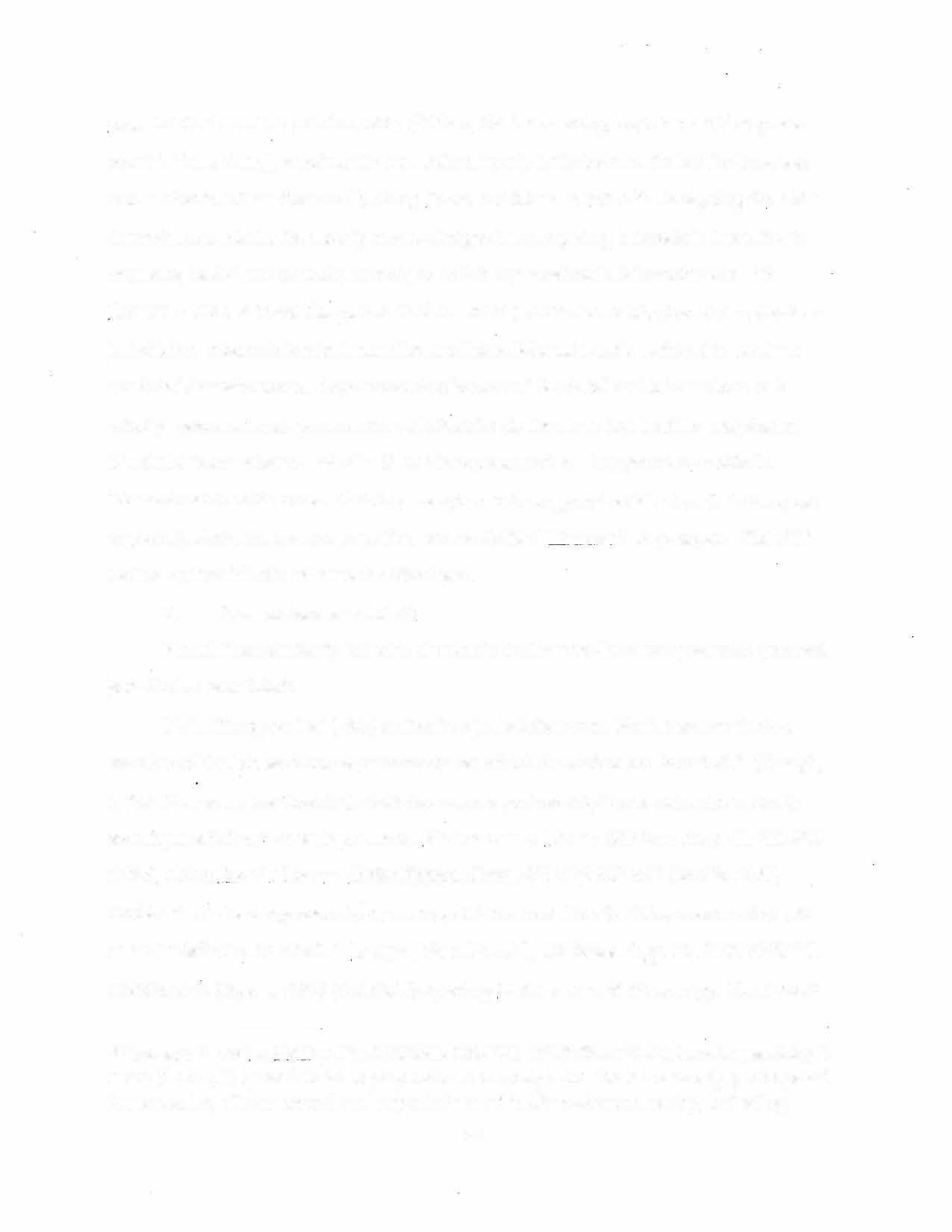
Inc.. 132F.3d 111, 113 (1stCir. 1997) ("Often, the'transactingbusiness' test"requires courtto "ascertain[] whetherthe nonresidentparty initiatedor solicited thebusiness transaction inMassachusetts."), citingTatro. 416Mass. at 767-768. Insigningthe2000 Amendment,MartinM.merely acknowledgesthecompetinginterestsinhisfather's bequests;hedid not provide,recruit,orsolicitany servicesinMassachusetts. Cf. Cossart v. United Excel Corp., 804F.3d 13, 18-19 (1st Cir. 2015) (Section 3(a) authorized jurisdiction wheredefendantrecruited andhiredMassachusettsresident to perform workinMassachusetts). Any connectionbetweenMartinM.andMassachusettsis whollyincidental and, presumably, attributable tothemere fact thatthe recipient of MartinM.'sacceptance-MartinG. orhisrepresentative-happenedtoresidein Massachusettsat the time. This does notplausiblysuggestthatMartinM. "attempted toparticipatein thecommonwealth'seconomic life." Diamond Grp., supra. Plaintiff's claimsagainstMartinM. mustbe dismissed.
B. Jurisdictionas toMark
Plaintiffhassimilarly failed to demonstratethat the Courtmay exercise personal jurisdictionoverMark.
Plaintiffarguesthat§ 3(a)authorizesjurisdiction overMarkbecause "heisa memberof theMassachusetts partnership on which theclaims arefounded." (Comp!., <[28.) However, the Court'sjurisdiction overa partnership "does notautomatically securejurisdiction" overitspartners. Kleinermanv.Morse.26Mass.App.Ct. 819, 824 (1989), citing Escude Cruz v. OrthoPharm.Corp., 619 F.2d 902, 906 (1st Cir. 1980). Rather, "active entrepreneurialormanagerialconduct I] inthe[Commonwealth] will cause jurisdiction to attach." Lacy v. Tublia Pte Ltd.. 100 Mass. App. Ct. 1131, 2022 WL 982076, at*2 (Apr. 1, 2022) (Rule 23.0), quotingKleinerman. 26Mass. App. Ct. at 824.13
13 See, e.g., Farazi v. Caffey. No. 030834C,2007WL 1630973, at*5-6 (Mass. Super. May2, 2007)(Locke,J.) (jurisdiction appropriatewherecorporatedirectoractivelyparticipated inmarketingeffortstoward andnegotiationswithMassachusetts entity, including
Plaintiff offersnofactsto suggestthatMarkeverengagedin suchconduct. He was merelyalimitedpartnerwith,byallaccounts,apas_sive roleinthe partnership.
Plaintiff responds thatMarkinvested "in thepartnershipin 1992and received distributions fromit for33years." (Pl.'s Opp. at31.) Buttherecordreflectsonlythat Markmadean initial contribution of$500 andthereafter received distributions. Plaintiff'stheorywould subjecteverylimitedpartnerin aMassachusettsf>artnershipto jurisdictionintheCommonwealth. Thatisnot the law. Ownershipofaforumentity by apassive investor,withoutmore,is insufficientto support personaljurisdiction. United Elec.,Radio&Mach.Workers ofAm. v. 163PleasantSt. Corp., 960F.2d 1080,1087 (1st Cir. 1992),citingKleinerman,26Mass.App .Ct. at823-824. AndPlaintiffhas not alleged factssuggesting that Markwas a"principal actor,"Kleinerman,26 Mass. App. Ct. at 824,or"primaryparticipant," Cossart, 804 F.3d at 19,in anyforumactivitieson behalf ofthePartnership. The claims against Mark must bedismissed.14
C. JurisdictionastoWilliam
Plaintiff'sattemptstoestablishthe Court'sjurisdiction overWilliam fail for similarreasons. PlaintiffarguesthatWilliam "usedL.F.I.,Inc.... as afrontforhis personal transactions" and "intermingledhisongoingbusinesspersonalaccounts ... and[thePartnership]." (PL�sOpp. at32.) ButI cannotcreditsuchconclusory allegations made "on information andbelief" and"withoutanyfactual detail." Ward v. sendingthreeletterstoplaintiffinMassachusetts);JohnsonCreativeArts,Inc. v.Wool Masters,Inc., 573F.Supp.1106,1111 (D. Mass. 1983) (personaljurisdictionover presidentwhoplannedtheincorporation,composedandmailedthesolicitationletter, andreceivedtelephone orders from Massachusettsretailers).
14 Plaintiff's argument thatMarkis anecessarypartyto thisaction isunavailing. Rule 19,requiringjoinderofa necessaryparty iffeasible, doesnotauthorize theCourt tojoin partiesthatare not subjectto personaljurisdiction. Mass.R. Civ.P. 19(a)(emphasis added). Rather,the Court's lack ofjurisdiction is areason fornon-joinder. SeeMass.R. Civ. P. 19,Reporter's notes,para. 9.
Auerbach,Civ.A.No.16-12543-FDS;2017WL2724938,at*11 (D. Mass. June 23,2017).
The Complaint does not remotely presentfacts tosupporta piercing ofthe corporate veiltojustifyjurisdiction here. SeeJinks v.Credico (USA) LLC,488 Mass. 691,697 (2021) (listingfactors forveil piercing). To besure,itallegesthatWilliamtransacted businesson behalf ofthePartnership but,by allaccounts,theseactsoccurredinthe CzechRepublic. Strippedof theconclusory andspeculativeallegations,theonly basis PlaintiffassertsforthisCourt toexercisepersonaljurisdictionoverWilliam isthatL.F.I., Inc. andL.F.I.LP are Massachusetts entities,andthat William isan officer oftheformer andexercises certain control over the estatein the CzechRepublic. Plaintiffhas not alleged facts demonstrating thatWilliamengaged in "activeentrepreneurialor managerial conduct[]" inMassachusettstosupport personaljurisdictionoverhim. 1.acy,2022WL 982076,at*2,quotingKleinerman,26 Mass. App. Ct. at 824.Therefore, theclaims againstWilliammustlikewise bedismissed.15
D. AdequacyofServiceastoMarkandWilliam
The claims against Mark and Williamare alsosubjecttodismissal forthe independentreason thatPlaintiffhas failed to properly serve theminaccordance with Mass. R. Civ.P. 4Q). Rule40) requires a plaintiff to servethesummons and complaint uponeachdefendant within 90daysafterthe complaint is filed. Iftheplaintiff "cannot showgoodcause why suchservicewasnotmade withinthatperiod,theactionshallbe dismissed ... without prejudice ... ." Mass. R. Civ.P. 4(j). Plaintifffiledthe Complaint onOctober28,2024. OnOctober30,2024,counsel forDefendantsnotifiedPlaintiff's Counsel thathe would acceptservice on behalf ofMartinM.butexplicitly statedthathe wasnotauthorizedtoacceptservice astoWilliam. Thatsameday,MartinM.fileda
15 AsIfindthatPlaintiff hasnotsupportedhisclaimthattheCourthasjurisdictionover the non-resident DefendantsunderG.L. c. 223A,§ 3(a),Idonot address whetherthe exercise ofjurisdictionwouldviolatethe long-arm statute. See Exxon Mobil,479Mass. at317n.3,supra.
notice to remove the action to federal courtbasedondiversityjurisdiction.16 Thefederal
District Courtultimatelyremandedthe matteronApril9,2025 and,onApril11,2025,
the casedocket wasreopened inthisCourtandthe federal court filingswerereceived
anddocketed. Priortothiscase beingreopened,Plaintiffattempted butdidnot
effectuateservice oneitherMarkorWilliam. Thereisnoindication thatPlaintiffever
movedthefederal court foradditionaltime oralternative service whilethe casewas
pendingthere. Aftera status conferenceinthisCourtonApril23,2025,defensecounsel
emailedPlaintiff's counselindicating that hewould acceptservice forMarkand
William while reservingtheir rightstoseekdismissal basedon thetimingofservice.
Plaintiff's counselpurportedto "memorialize" thatstatement but there isno indication
thatdefensecounselresponded toPlaintiff's"confirmation."
Basedonthe foregoing,Plaintiffplainlydid notserveWilliam orMark within90
daysoffiling suit. Plaintiff'sargument that theservicedeadlineshould bedeemed
tolledwhile the case waspending infederalcourtfails. First,he citesnoauthorityfor thatproposition. Second,within oursystem offederalism,State andFederalcourtsdo notoperatewithdisregard to theproceedingsorprocedural failingswhichoccurinthe othervenue merely because the caseisremoved orremanded. See Crossetti v. Cargill, Inc., 924F.3d 1,2 (1st Cir. 2019) (affirmingfederal districtcourt'sdismissal forfailureto effectservice underMass.R. Civ. P.40)). And here,the federalrule,Fed.R. Civ. P. 4(m),likewise requiresservice within 90days,ora showingof "good cause" forfailing todoso. Nothing aboutMartinM/sattemptto removethismatterpreventedPlaintiff fromservingWilliamorMark,andPlaintiffwasstill obligated to do so. SeeFed.R.Civ.
P. 4. NoramIpersuadedthatPlaintiffhasdemonstrated "goodcause"forhisfailure to serveMarkandWilliam. "Good causeis'a stringentstandardrequiringdiligen[t] albeit
16 Plaintiffmaintainsthatdefensecounsel acceptedservice on behalf of MartinM.,a singularout-of-statedefendant,as a"ruse" tosupportfederaljurisdictionoverthe matter.
unsuccessfulefforttocompleteservice withintheperiod prescribed by therule."'
CommissionerofRev. v. Carrigan,45Mass.App. Ct. 309 (1998) (alterationinoriginal), quoting Shuman v.StanleyWorks. 30Mass.App. Ct.951,953 (1991). Here,the difficultiesin servingMarkandWilliam werereadily apparent while thematterwas pendingin federal court,andPlaintiff didnot seekan extension ofthe deadline orfor leaveof service by alternative means nordidPlaintiffseek such leave after remand.
"(H]alf-hearted efforts" toeffectservice do notconstitute good cause. Carrigan. 45 Mass. App. Ct. at 313.17
Therefore,the claims againstMark andWilliammust bealso dismissed for Plaintiff's failure to effecttimely service.
IV. ChallengestoCountsI-VI
Defendantsraisespecificobjectionstoeachcountof the Complaint whichI addressbelow. However,these challenges shareacommontheme: that theComplaint mustbedismissed becausePlaintiff's claimsare time-l;>arred bythestatute oflimitations (inwhole orinpart);Plaintiff lacksstanding; andeachcountfailsto stateaclaimon whichrelief can begranted. I donotagree. Plaintiffhaspresentedsufficientfactual allegations tosupport the claims alleged-exceptastoAndreainCountIV. Further, Plaintiffhasallegedsufficient factsastohis standing andtheaccrualdate(s) ofhis causesofactionthatcannot be resolved atthemotionto dismiss stage.
Asapreliminary matter,Defendantsargue thatcertainofPlaintiff's_claims (or portion thereof) aresubjecttothe Czechstatuteof limitations. Asstatedabove,I donot agreethat Czechlaw applies. Massachusetts courtsemploy thefunctional choice oflaw approach set forth in the Restatement (2d) § 142. Nierman v. Hyatt Corp., 441 Mass.
17 WhileI donotendorse thepossiblegamesmanshipofdefense counsel's crypticand internally contradictory "acceptance" ofserviceonApril28,2025, thisexchange occurredlong afterthe90-day deadlinehad passedand shouldhave raised somealarm thatservice remainedacontestedissue.
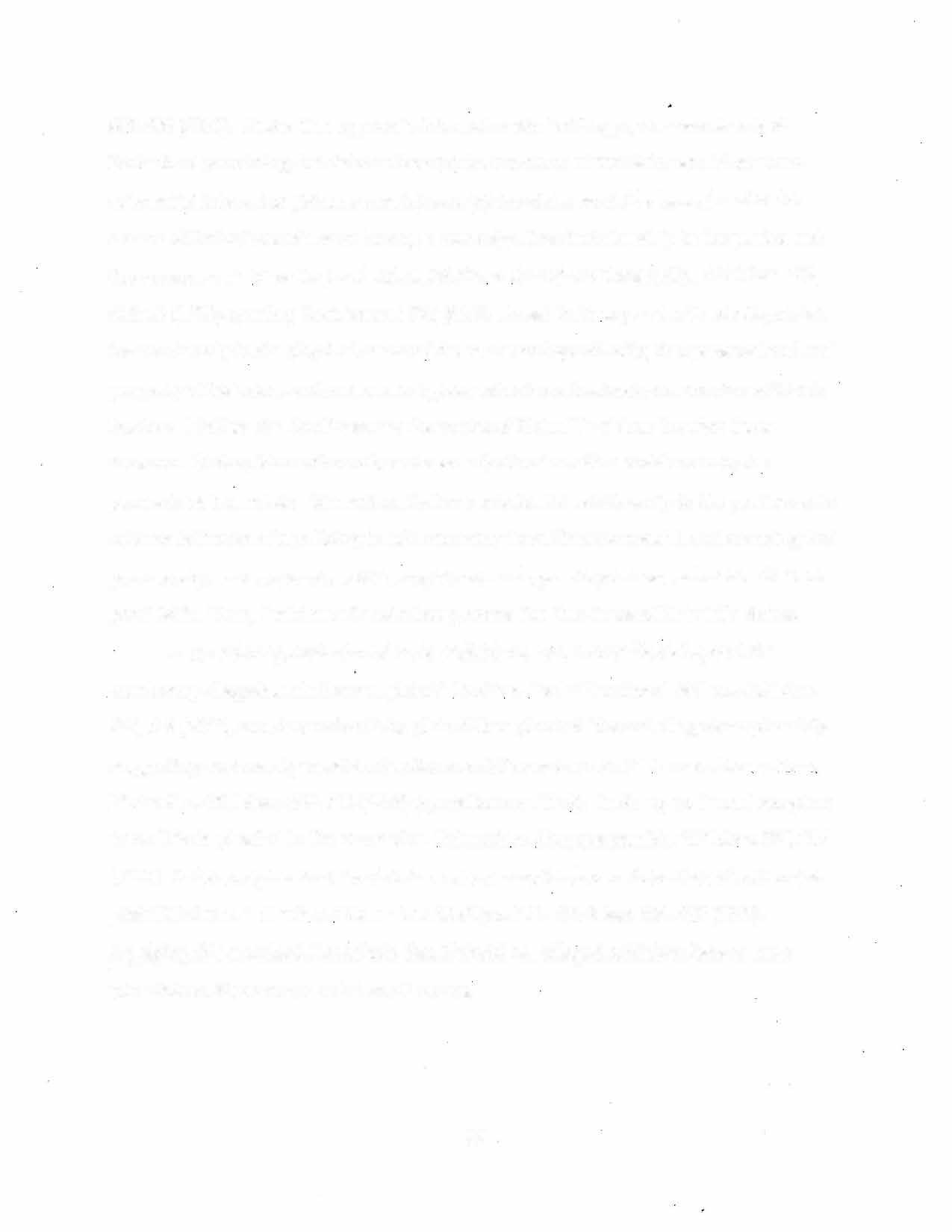
693,695 (2004). Underthisapproach,Massachusetts "will apply itsown statuteof limitationspermittingthe claimunless: (a)maintenanceoftheclaim wouldserveno substantial interest of (Massachusetts]; and (b)theclaimwould bebarredunderthe statuteoflimitationsof astate having amoresignificantrelationshiptothepartiesand theoccurrence." NewEnglandTel. &Tel.Co. v. GourdeauConstr. Co., 419Mass. 658, 660n.1 (1995),quoting Restatement (2d)§ 142. Assetforth supra,theCzechRepublic's interestisonlyin the physical assetsofthe estateand specifically,thatpersonalandreal propertyofhistorical,cultural andreligiousvalue is maintained andremainswithinits borders. Neitherthe timeliness northe meritsofPlaintiff's claims threaten those interests. Rather,Plaintiff merelyseeksan adjudicationof his entitlement tothe proceedsof that estate. Massachusettshasa substantialrelationshiptothepartiesanda substantialinterestin policingfraud emanatingfromCommonwealthandensuringthat partnerships andcorporate entitiesregisteredandoperating inMassachusetts doso in good faith. Thus,the Massachusetts law governsthe timelinessofPlaintiff'sclaims.
In considering Defendants'Rule 12{b)(6) motion,I must "lookbeyondthe conclusory allegationsinthe complaint,"Curtisv.HerbChambersl-95Inc.,458Mass. 674,676 {2011),and determine if the plaintiff has pleaded "factual allegations plausibly suggesting (not merely consistent with)anentitlement torelief." Iannacchinov.Ford MotorCo., 451 Mass. 623,636 (2008) (quotationsomitted). In doing so,I must acceptas trueallfactspleadedin the complaint. Edwards v. Commonwealth,477Mass.254,255 {2017). Ialso acceptas true"suchinferencesasmay be drawn[fromthosefacts] inthe plaintiff'sfavor." Blank v.ChelmsfordOb/Gyn.P.C.,420Mass.404,407 (1995).
Applyingthisstandard,IconcludethatPlaintiffhas allegedsufficientfactstostate plausibleentitlementstorelief onall counts.
A. Breach of FamilyAgreement (CountI)
CountIassertsclaimsagainstBrooks,individuallyandaspersonal representative ofMartin G.'s estate,for breachof theFamilyAgreement. Itallegesthat MartinG. andBrooks,by managingtheCzechestate fortheirown benefitand radically reducingitsvalue,breached theFamilyAgreement.
Defendantsarguefirst thatBrooks cannotbeheld personally liablebecauseshe wasnotaparty totheFamilyAgreement. NextDefendantsarguethat claimsagainst herinhercapacity asrepresentativeofMartinG.'sestate,whichpre-dateOctober28, 2023,are barred by the one-yearstatute oflimitations. SeeG.L. c. 260,§11.
Iquickly depose ofDefendants'firstargument. The 2000Amendment tothe FamilyAgreementprovidedthat,uponMartinG.'s death,Brookswouldsucceedhim withpowerofattorneyovertheCzechEstateand"stepintoMartin's shoesunderthe FamilyAgreement and shall haveallrightsand privileges granted toMartin[G.] ...."
(Pl.'sCompl.Ex. S at p. 4,§ 4.) TheComplaint allegesthatfollowingMartinG.'sdeathin 2014,Brooksassumed and breachedtheseduties by failing tomanage theCzechestate and distribute the proceedsthereofinequalsharesamong the three branchesofthe family. This issufficient to stateaclaimthatBrookswasa partytoandbreachedthe FamilyAgreement.
AstotheclaimsagainstBrooks inhercapacity as personal representative of Martin G.'sestate,G.L.c. 260,§ 11simplyc;loesnotapply. Theone-yearstatuteof limitationsthereinappliesto a"contractmadeoractdone ... byanypersonactingas the ... legalrepresentative of the estate ofa deceased person." Id. (emphasisadded).
CountIisnotdirectedatactsdone byBrooks as personal representative butratherseeks toholdMartin G.'sestate liable forhisallegedbreachesof theagreement. SeeXarrasv. McLaughlin,66 Mass. App. Ct. 799,801 (2006) ("[T]he claim against the deceased may bepursued ...[by naming] the personalrepresentativeofhisestateasa party."). Thus usualsix-yearstatute oflimitationsapplies. See G. L. c. 260,§2.
Moreover, actionsfor breachofcontractaresubjecttothe discoveryruleanddo notaccrueuntil aplaintiffknewofshouldhaveknownof the cause of action.
Szymanskiv. Boston Mut. Life Ins. Co., 56 Mass. App. Ct.367, 370 (2002). And "[w]hen adefendantfraudulentlyconcealsa cause ofaction from the knowledge ofaplaintiff, thestatute of limitationsis tolledunderG. L. c.260, §12, forthe periodprior tothe plaintiff'sdiscoveryof thecause ofaction." Demoulasv.Demoulas SuperMarkets,Inc., 424Mass. 501, 519 (1997). Pinpointingthedate ofaccrual is a questionfor thefactfinder unless the record permitsit to bedecided asa matterof law, whichis not thecase here.
Id., citingTaygeta Corp. v. VarianAssocs.. 436Mass. 217, 229 (2002). TheComplaint allegesthatMartinG.and thereafter,BrooksandWilliam, controlled allinformation concerningthefinancialstatusoftheCzechestateandactivelymisledDominik and thenKarpjakconcerning thesamefornearlythree decades. These allegationsraise factualdisputesastowhenPlaintiff's claims accruedthatI cannotresolveasa matterof lawona motiontodismiss. Additionally, asPlaintiffhas allegedthatBrooksbreached theFamilyAgreementwithin thesixyears preceding thisaction, someportionofCount I istimely, regardlessof theaccrualdate andIneednot parse thetimelyand untimely portionsof the claim asthis stage.
Next,Defendantsargue thatPlaintifflacks standing to bring CountIbecause he is nota signatoryor third-party beneficiaryof theFamilyAgreement. This argument ·alsofails. Itis blackletter law thata contractual right, includinga cause ofaction for breach, can beassigned unless assignment is expresslyforbidden bythe termsof the contract or bystatute. Nova Assignments,Inc. v.Kunian, 77 Mass. App. Ct. 34, 41 (2010);AmericanEmployers'Ins. Co.v.Medford,38 Mass. App. Ct. 18, 22 (1995). Defendantshave notidentified anyprovision oftheFamilyAgreementoranystatute prohibitingapartyfrom assigning itsrights thereunder. The Complaint alleges that Dominik's willleft his entire estate, including his interestsin the Czech estate; the FamilyAgreement, etc. to his widow,Karpjak, andthatKarpjak, in tum, conveyedto

Plaintiffallherinterestsin assetsassociatedwiththeCzechRepublic whichshe inheritedfromDominik. Thesefactualallegationssufficiently suggest thatPlaintiff stepped intoDominik's shoes and has standing to claima breach oftheFamily.
Last,Defendantsraise thespeciousargumentthatCountIfailstoallegefacts supporting.theelementsofa breachofcontracfclaim. To state aclaimfor breachof contract plaintiff mustplausibly allege (1)the existence ofan agreementbetweenthe parties; (2)supported by consideration; (3) that defendant breachedthecontractand was not excused fromperformance; and (4)thatthe plaintiffsuffered harmasaresult.
Bulwerv. MountAuburn Hosp., 473Mass. 672,690 (2016).
Defendantsassertthat thefirstelement islackingbecausethePartnership AgreementsupersededtheFamilyAgreement. Afullyintegratedcontract only "dischargesprioragreementstothe extent thatthey are within its scope" and "even apparentlystraightforwardcontractual languageassertingintegrationwillnotalways compelaconclusion thata writingreflectsacompleteandintegrated agreement." Chambers v.Gold MedalBakery,Inc., 83Mass. App. Ct. 234,242-243 (2013). Otherwise stated,whilesuchaclause isevidence ofintegration,it isnotconclusiveparticularly wherethe language wasnotnegotiated atarm's lengthby sophisticatedparties. Id.at 243. Here,MartinG. hadhisowncounseldraftthePartnershipAgreementand initially,executedithimself-asrepresentative ofthegeneralpartner,L.F.I.,Inc., and onhisown behalf asthe only limitedpartner. Hethenpresented thisfinishedproduct toDominic,Mark,andAndrea withanamendmentadmitting themas limitedpartners andstatingthepurpose was-tohavetheFamilyAgreement "incorporatedin[the] formal limited partnership." This record does not suggest that the integration clause in thePartnershipAgreement wasa negotiatedterm or that the partiesbelievedthe PartnershipAgreementdischargedtheFamilyAgreement. Tothecontrary,theparties twice amendedtheFamilyAgreement,atMartin G.'s request,afterexecuting the PartnershipAgreement. The 2000AmendmentexpresslyreferencestheFamily

Agreement "datedMay 31, 1991,as amendedFebruary9,1994." Plainly,all parties
theretoconsideredtheFamilyAgreementtobe operative.
Defendants' claim that theFamilyAgreementlackedconsiderationalsois withoutmerit. "The requirementofconsiderationissatisfiedif there iseitherabenefit
tothepromisororadetriment tothe promisee." Pixleyv. CommissionerofRevenue, 102Mass. App. Ct. 720,729 (2023) (Henry,J.,concurringinpart,dissentinginpart),
.quotingMarineContrs. Co. v. Hurley, 365Mass. 280, 286 (1974). Here,the considerationwasexplicit:Dominik,Mark,andAndrea"assigned toMartinG.alltheir right,titleandinterestinandtothe[Czechestate]." (Compl.,Ex.E,p. 2.) The assignmentbenefittedMartinG. byallowing himto pursueclaimsforrecoveryofthe Czechestate that,pertheFamilyAgreement,freefromobstaclesimposed ifnon-Czech citizensretainedan ownershipinterestinthe property. The merefactthatDominik, Mark,and Andreapurportedly couldnot pursuerecoveryoftheirinheritance at the time,doesnotmeantheintereststheyassigned toMartinG. were worthless. Dominik, Mark,orAndreacould have establishedCzechresidence and citizenship18 and then pursued suchclaims,ortransferredtheirrightstoa party who was eligible torecover the estate-e.g., MartinG.
DefendantsIi.ext argue thatthey wereexcused fromperformancebecause
Dominikfailedtoreimburse MartinG.,inaccordancewith subparagraph (b)of the
FamilyAgreement,forexpensesMartinG. and/orWilliam purportedly incurredin
1991. Buttherecordbefore me does not suggestMartinG. soughtreimbursementfor the amountsreferencedand,construingtheComplaint and attachmentsinthelight
18 Giventhe prominence oftheLobkowiczfamily,I cannot conceivethatthese individualswould havehad difficulty establishing Czech citizenship bydescent. See, ConsulateGeneraloftheCzechRepublicinNewYork,"CzechCitizenship byDescent," (Sept. 10,2024)availableathttps://rnzv.gov.cz/consulate.newyork/en/visa_and_ consular_inforrnation/consular_information/about_czech_citizenship_and_dual/czech_c itizenship_by_descent.html.
mostfavorable toPlaintiff,Imayreasonably inferthattheretroactivecompensation MartinG. awarded toWilliam andhimself encompassed such expenses. Theactions of MartinG. orhissuccessors,includingthe1994 and2000Amendments,refuteany suggestionthatthey considered themselvesexcused from performanceunderthe FamilyAgreement.
Defendants' final argument,thatPlaintiffhas notalleged abreachoftheFamily Agreement,doesnotmeritextended discussion. TheComplaintalleges thatatvarious timestheCzechestatehasgarneredhundredsof thousands to millions of dollarsin annualprofitbutthatMartinG. andBrooksprovidedonly meagerdistributionsto Dominikandhis successorswhile awarding substantial sums to themselves. Plaintiff hasplainly stateda claim for breachof theFamilyAgreement.
Forthe foregoing reasons,Defendants'Motion toDismiss CountIisdenied.
B. BreachofPartnership Agreement(Count II)
Defendants seekdismissal of CountII onpredominantlythesamegroundsas assertedagainstCountI,andthesearguments fail forsimilarreasons.
Specifically,CountITisnottime-barred. Issuesof factexistastowhenPlaintiff's causeof actionaccrued and,regardless,PlaintiffhasallegedthatL.F.I.,Inc. aridBrooks breachedthePartnershipAgreementwithinsixyearsof Plaintiff filing thisaction.
CountII,however,presents athornierstanding issue. Section 7.1.1 of the PartnershipAgreement,"RestrictionsonAssignment," providesthat"[n]o Partnermay ... assignanyorall ofhis,herorits financial interestinthePartnershipexceptwiththe consentof theGeneralPartner[L.F.I.,Inc.]." (Compl.,Ex. G. atp. 13.) Plaintiff doesnot allegethatL.F.I.;Inc. consentedtoanassignmentofpartnershipinterestsfromDominik toKarpjakor fromKarpjaktoPlaintiff. However,the Partnership Agreementdoesnot explicitlyaddress whether§ 7.1.1 appliestobequests,or whatbecomesof thelimited partner'sinterestuponhisorherdeath. Itmerely providesthatthedeathofalimited partnershall notdissolve orterminatethe Partnership,andthatthetermsshall be

bindingonthepartners' "legal representatives,heirs, successors and assigns." (Id.atp. 14, §7.2,p.19.) Ultimately,Plaintiff will bear theburdenofproofinestablishingthat eachlinkinthe chain from Dominik to him constituted a valid and enforceable transfer of theinterestshe now asserts. This burdenappearssteep and may indeedprove insurmountable. But, construingthefactualallegations to betrue, asI mustat this stage,Plaintiff has alleged sufficientfacts as to the scope of§ 7.1.1,.the interplay between the various agreementsatissue, andPlaintiff's right to assert claimsunderthe Partnership Agreement toprecludedismissal.
Additionally, theComplaintplausibly alleges breachesof thePartnership Agreement-namely,L.F.I.,Inc.Martin G., andBrookswillfully andimproperly diverted fundsto themselves andtoWilliam, in breachof theirobligationtoissue distributionsaccording to theformulasetforthin thePartnershipAgreement. The merefact that thePartnershipAgreementdoesnot require distributions atspecific intervalsdoesnotrelieveDefendantsof theirdutiesto adhere to theformulawhen proceedsaredistributed,ormore to thepoint,torefrainfromimproperself-dealing, (seeEx.G, atp. 7, § 3.6), oractin good faith. SeeUnoRests.,Inc. v.BostonKenmore RealtyCorp., 441 Mass. 376, 385 (2004) ("The covenantof good faith and fairdealing is implied in every contract.").19 Defendant'sMotion as to CountII is thusdenied.
C. BreachofFiduciaryDuties(CountIII)
CountIIIalleges thatL.F.I.,Inc.,Martin,Brooks (and William)breachedfiduciary dutiesundertheFamilyAgreement,PartnershipAgreementand 1993 Powerof Attorney by misrepresentingthefinancial conditionof the Czech estate andusingthe
19 Defendants'argument thatPlaintiff cannot assert the right ofa limitedpartnerto reviewthePartnership's booksandrecords assumes factswhichare in disputenamely that thetransfersofinterests fromDominikthroughKarpjakisunenforceable. I see no reasontoparseCountII insuchfashion where, regardlessof whetherPlaintiff hasaright to access the books underthePartnershipAgreement, heisentitledto pursuediscoveryintothe samerecords. SeeMassR.Civ.P. 26(b), 34.
estateandprofitstherefromfortheirown benefitratherthan the benefit ofDominik andthePartnership.
AstothetimelinessofCountIII,athree-yearstatute of limitationsapplies. G.L. c. 260,§2A. Again,the present record.doesnotpermitme to conclude,asamatterof law,whenthese causes of actionaccrued-i.e.,whenPlaintiff orhis predecessors-ininteresthad actual knowledge ofinjuryfrom the fiduciaries' conduct. SeeTocci v. Tocci, 490 Mass. 1,12 (2022) ("[T]he statute oflimitations istolled'until aplaintiff has actual knowledge that [he or] she has been injured by thefiduciary'sconduct."' (alterations inoriginal)),quotingDoev. Harbor Sch..Inc., 446 Mass. 245,254,(2006).
Astothe merits ofCountIII,L.F.L,Inc. asthe general partnerof thePartnership owedafiduciary dutytothe limited partners. SeeGreenleafArmsRealtyTr.LLLCv. NewBostonFund,Inc., 81 Mass.App.Ct.282,291(2012)("Ithas longbeensettledin thisCommonwealththatgeneralpartnersowe theirlimitedpartnersa fiduciary dutyof utmostgoodfaith and loyalty no lessthanthatwhichgeneralpartnersorstockholders inaclosecorporationowe oneanother."). Likewise,Dominik's grant ofapowerof attorneyto MartinG. andthereafter,toBrooks,establisheda fiduciary relationship. See Rempelakis v. Russell,65 Mass. App. Ct. 557,564 (2006) ("powerof attorney creates fiduciary relationship withrespect to allmattersembraced by the power"),citing Gagnon v. Coombs,39 Mass.App. Ct. 144,154 (1995). The Complaint alleges facts plausibly suggesting thatL.F.l.,Inc.,MartinG.,andBrooks breachedtheseduties by, inter alia, engaging in improperself-dea�ing,misrepresentingthefinancialcondition/ profitsoftheCzechestate,and syphoningoffunearnedsums fromthe proceedsofthe estate. No more is necessary. See Geller v. Allied-Lyons PLC, 42 Mass. App. Ct. 120, 122 (1997) (fiduciary has dutyto be loyal andtorefrain from promoting own interestsin amannerinjurious·to partytowhomduty isowed). Defendants'objectionsto Plaintiff'sstanding merelyraisesthesamefactualdisputes asCountsI andII, whichI cannotresolveatthis stage.

D. Conspiracy to Violate Fiduciary Duties (Count IV)
To state a claim of civil conspiracy, Plaintiffmust plausiblyallege "anunderlying tortious actin whichtwoormorepersonsactedinconcertandinfurtherance ofa commondesignoragreement."Williamson v.Barlam. 103Mass. App. Ct.727,733 (2024), quotingBartlev.Berry,80Mass.App. Ct.372,383-384(2011). Otherwisestated, Plaintiffmustallege "a common planto commita tortiousact." Greene v. Philip Morris
USAInc., 491Mass. 866, 871 (2023).20
Defendants arguefirstthatCountIV failsbecausePlaintiff has failedtoallegean underlyingbreachofa fiduciaryduty. Essentially, thisrepeatsDefendants'attackson themerits ofCountIII. Forthe reasonsset forthsupra.I donot agree. The factual allegationsin theComplaintto support a civil conspiracyclaimaresparseand mostly concernthecollective actionsofMartin G.,William,andBrooks. As noted, claims directedatWilliamshall bedismissed forlackjurisdiction. Notwithstanding the fact thatWilliam will no longerbeaparty,whereBrooksand William "actedjointly each would beliable foranyactionablerepresentationsmade bythe othersby whichthe wrongwasfinallyaccomplished." Id.at 872, quotingGurney v. Tenney,197 Mass.457, 466 (1908). Here,theComplaint plausibly suggeststhat William andBrooksactedas partofa commonschemesuch that, for instance,William'srepresentationtoKarpjak that"wehave lost 100% of our business[and] thereisnoincome anywhere" may attributed toBrooks.
AstoAndrea,however,CountIV failsto state aclaim. Plaintiffalleges that Brooks,William,Mark, andAndrea met inFebruary2024and determinedto cutof communications withPlaintiff. ButtheComplaintdoesnotstate, beyond mere
20 Absent anunderlying tortiousact,Plaintiffmayprove a "trueconspiracy" basedon evidencethatDefendantsexercised somepeculiarpowerofcoercionthatthey would nothave possessed had they beenactingindependently. Greene,491 Mass. at875n.10 (citationsomitted).
conclusions,thatAndrea,as alimitedpartner,owed aduty to communicate with Plaintiff or failed todo soin a manner plausibly supporting acivil conspiracy claim againsther.
Forthe foregoing reasons,Defendants' Motion toDismiss CountIVis allowed as toAndrea only,21 andis otherwisedenied.
E. Fraudulent Misrepresentation (Count V)
Defendants' MotionastoCountV rehashes manyofthefailedattackson"Counts IthroughIII,andthey fair no betterhere.
First,fraud claims are subject tothediscoveryrule and thus,Plaintiff's cause of action didnot accrue untilhe orhis alleged predecessors-in-interestkneworreasonably shouldhaveknownofthe misrepresentation. Davalos v.BayWatch,Inc., 494Mass. 548,552 (2024);Friedmanv.Jablonski,371Mass.482,485 (1976). As discussed supra, determining the accrual date here requiresresolutionoffactquestionsthat cannot be doneon the record before me.
Second,DefendantschargethatPlaintifflacksstandingdoesnotsupport dismissal. A claim of fraudisassignable. NovaAssignments, 77 Mass. App. Ct. at42.
Asnoted,the extent towhichDominikandKarpjaktransferredtheirrightsto the Plaintiff to pursuethis claimpresentsquestions of fact moreappropriate fortrial or summaryjudgment.
Fourth,CountV statesaclaimoffraud. Fraudrequires ashowingthat (1) the defendantmade afalse representation of a material fact withknowledge of itsfalsity; (2) to induce aparty toactthereon,and (3)thatthepartyreliedupontherepresentation toitsdetriment. CopleyPlaceAssocs.,LLCv.Tellez-Bortoni,91 Mass.App. Ct. 186, 187-188 (2017). "[F]alse statementsofopinion,ofconditionstoexistinthefuture,and
21 CountIVistheonly daimdirected atAndrea. Herdismissal will becomplete in thirty days unless any party seeks leave withinthattime period tokeep herinthe case asanominal butnecessaryparty.
promisestoperformanact cannotsustain aclaimfor I] misrepresentation ... unlessthe· prornisorhadnointention toperformthepromise at the time it wasmade." CumisIns. Soc'y,Inc. v.BJ'sWh(?lesaleClub,Inc., 455 Mass. 458, 474 (2009) (internalquotation omitted).
TheComplaint alleges thefollowingstatements constitutedfraud:
1. In 1991, Martin G.'sadvisedDominiktorenounce hisinterest intheCzech estatein favorofMartinG. simply "in ordertonothaveourclaims[for restitution]rejectedonatechnicality."
2. In1992,MartinG.informedDominikthat"I[Martin]through[L.F.I.,Inc.] will conduct the restitution business inCzechoslovakia," whenin fact, Williammanaged the estate through hisown entities.
3. In 1993,Martin G. statedtoDominikthat"itisnot atall clear thatthe recoveredpropertyactuallyhas any netvalue."
4. In1993,MartinG. toldDominik thata newpowerofattorney wasneeded "to raisesomemuchneededcash."
5. In 1994,MartinG. toldDominikanamendmenttotheFamilyAgreement, grantingMartin G.furtherauthorityto actunilaterally, wasrequiredto realize "the economic benefit [to] us all."
6. In1994, twice in 1995, andagain in 1996,MartinG.toldDominik thatWilliam andSandra had "been unpaid fortheireffortsto date," and "have yet tosee anycompensation," "payment" or"salary."
7. In2000,Martin G. toldDominik thattheCzechestateremained inMartinG.'s name "solelyfortaxpurposes."
8. Brooks toldDominikin2015thattheCzechprobate action wasnotsettled and in2016, that theCzechcourthad stillnotapproved her "as the heirto Martin'sestate."
(Compl., ciI'II 129-136.) Plaintiffcontendsthatthesestatementswereknowingly false and designedto conceal theactual valueandrevenue of the recovered property, the substantialcompensationandbenefitsWilliamandSandrareceivedfromtheproperty, andto allowMartin G. andBrooks tosurreptitiouslysecure control oftheCzechestate andthefruits thereof, tothe exclusionofDominik, hisheirs andassigns. Plaintiff furtherallegesthat thesemisrepresentationsinducedDominik(1)toenterintothe successionofagreementsceding authority toMartinG. tocontroltheCzechestateand
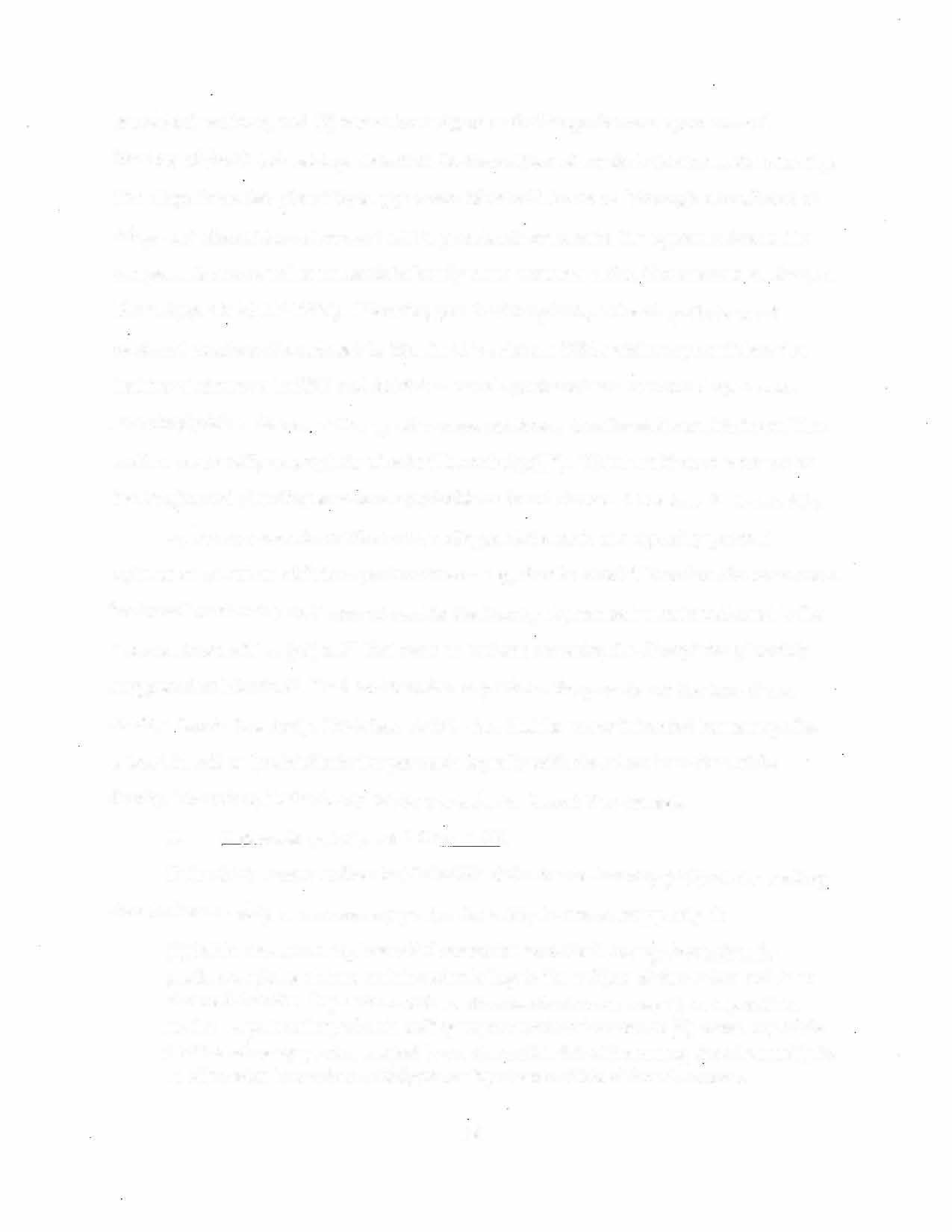
intereststherefrom,and(2)not toinvestigateorchallenge the management and financesofthe Czechestate.orMartin's G. disposition ofassetsto his immediatefamily. Theallegations also plausibly suggestthatMartinG. knewor "throughamodicumof diligence," shouldhave known thathis profferedreasonsforthe agreements andthe compensationdue to his immediatefamily were erroneous. SeeZimmerman v. Kent,31 Mass.App.Ct.72,77 (1991). Likewise,pertheComplaint,aCzechprobatecourt declaredBrooksas the sole heir toMartinG.'sestatein 2014,raising aplausible claim thatherstatements in2015and 2016 thatcertainprobateissueremainedopenwere knowinglyfalse. See id. ("The speaker need notknowthatthe statement isfalseifthe truthisreasonably susceptible ofactual knowledge[.]"). This is sufficient even under the heightenedpleading standard applicable tofraud claims. See Mass. R.Civ.P. 9(b).
T� besure,certainofMartinG.'sallegedstatements are arguably present opinionorpromises offutureperformance-e.g.,thathe would "conduct therestitution business"orthat the 1994 amendment totheFamilyAgreement would redoundtothe "economicbenefit ...[of] all." Buteven astothese remarks, theComplaintplausibly suggeststhatMartinG."hadnointentiontoperform thepromise atthetimeit was made," CumisIns. Soc'y, 455Mass. at474-i.e.,thathe never intendedtomanagethe estate himselfort.odistribute the proceeds equally with the otherbranchesofthe family. Therefore,Defendants' Motion to Dismiss Count Vis denied.
F. DeclaratoryJudgment(CountVI)
Defendantsmove to dismissPlaintiff's claimfordeclaratoryjudgmentasserting thatthePartnership as a necessary party. Anentity isa necessary party if:
(1) inhis absence completereliefcannot be accorded among those already parties, or (2)he claims an interest relating tothesubjectofthe action andisso situatedthatthe disposition ofthe action in his absence may (i) asapractical matterimpairorimpede hisabilitytoprotectthatinterestor (ii)leave anyofthe personsalready parties subjecttoasubstantialriskofincurringdouble, multiple, orotherwise inconsistent obligations byreasonofhis claimed interest.
Mass.R. Civ. P.19(a).
CountVIseeks ajudgmentasto "thevalidityofPlaintiff's claimtoDominik's interestintheCzechestate,includinghisinterests intheFamilyAgreementandthe PartnershipAgreement." (Compl.,<_[ 146.) InUrquhartv. Wertheimer,646F. Supp. 2d 210(D.Mass.2009),"[t]hecomplaintinclude[d] countsfor breachof the [p]artnership agreement,breachoffiduciary dutyowedtothe [p]artnershipand_allitslimited partners,breachoftheimpliedcovenantofgoodfaithandfairdealing, [etc.] ... rooted inallegationsthatDefendants [] paid themselves excessivemanagementfees, borrowedmoney ... forpersonal use,causedthe [p]artnership tolendmoneyat belowmarketinterest rates,andcommingled [p]artnershipfundswith theirown." Id. at212. There,thecourtheldthat becausetheclaimswere"clearly forharmthat flowsthrough the [p]artnershipfirst andthentoall thelimited partners," the partnership was a necessaryparty. Id.at212-213. AccordBankstonv.Burch,27F.3d 164,167 (5thCir. 1994) (partnershipwasnecessary party inaction bylimited partneragainstgeneral partnerfor misrepresentation,breachoffiduciary duty,mismanagementandwasteof partnershipassets,andbreachofcontract).
Here,theComplaint asserts similarcausesofactio:r:,.and supporting allegations. TheComplaint does seek additional relief forbreachesoftheFamilyAgreementandan individual claimofaccess to thePartnership'sfinancialrecords, seeLenzv.Associated Inns&Rests. Co. ofAm., 833F. Supp. 362,379 (S.D.N.Y. 1993) (limited partnercan bringindividual actionfor accounting),andraises broaderissues as to whetherPlaintiff hasstandingasa limited partnerand/or successor-in-interest. Buttheseclaims concerningDefendants'dutiesandPlaintiff'srightsundertheoverlappingFamily and PartnershipAgreements are bound upwiththeclaimsthatDefendants committed fraud,mismanagedthePartnershipfunds,andfailed toissue properdistributions. FollowingthereasoninginUrquhart,IconcludethatthePartnershipis anecessary
party.22
My conclusion,however,doesnotwarrantdismissal ofCountVI. L.F.I.,LP isa Massachusetts limitedpartnershipsubjec tothisCourt'sjurisdiction andI orderittobe joined as a party. See Mass. R. Ov. P. 19+ ("If[a necessaryparty] has notbeen [ ] joined,the courtshall orderthat[it] bemade aparty.If[it]shouldjoinasaplaintiffbut refuses to do so, [it] may be made a defe�ant.").23
dRDER
Wherefore,for theforegoing reasons,Defendants'Motionto Dismiss isAllowedin-part andDenied-in-part,as follo�s:
1) Plaintiff's claimsagainst thenon-forumDefendantsMartinM.,William,and MarkLobkowiczaredismissed forlackofpersonaljurisdiction. As additionaland independent grounds,theclaims againstDefendantsWilliam LobkowiczandMarkLobkowiczare also dismissed for inadequacy of service.
2) CountIV shall bedismissed astoAndreaLobkowiczonly. Andrea Lobkowiczshallshallbedismissedfromthiscase withinthirtydaysunlessa party filesa motiontokeepherinthecase asa nominal necessaryparty
22 WhileUrquhartandBankston,supra,appliedFed. R. Civ. P. 19,the federalrule mirrorstheprovisionsofMass.R. Civ.P. 19whichapply here. SeeStrom v.American HondaMotorCo., 423Mass. 330,335 (1996)("Because the MassachusettsRulesofCivil Procedure arepatterned after the Federal rules,we interpret ourrules consistently with the construction given their federal counterparts,... absentcompellingreasonstothe contrary orsignificantdifferencesin content." (internal quotations andcitations omitted)).
23 IrejectDefendants' additional argumentthatPlaintiff lacks standingto bringCount VIforthereasons stated passim. Lastly,even assumingarguendothatCountVIis duplicativeof Plaintiff's breachofcontractclaims,aplaintiffmaypleadalternativeand overlappingtheories ofliability andanyredundancyismoreappropriatelyaddressed on afullrecord viaa motion in limine orpursuanttoRule 56.See MassachusettsPort Auth. v. Turo,Inc.,No. 1984CV01773BLS1,2020WL2617169,at*4 (Mass. Super.Apr. 14,2020) (Green,J.) (courtneed notstrike duplicativeallegations unless movant "demonstrate[s] thatprejudice wouldresultif the offendingmaterialremained inthe pleadings").
underMass. R. Civ. P. 19.
3) Plaintiff isgranted leavetoamend the Complaint to addL.F.I.,LPasa necessary party.
4) The remainderofDefendants' MotiontoDismissisDENIED.
October�2025
DebraA. Squir -Lee Justice ofthe · periorCourt
